THE SUMMER OF THE BEAUTIFUL WHITE HORSE for Class 11 ENGLISH
THEME
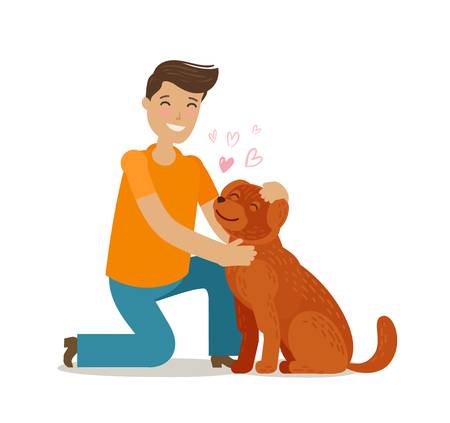
“The Summer of the Beautiful White Horse” is written by William Saroyan. In this story, the author portrays a beloved memory. He gets nostalgic when discussing this incident. The episode is about his cousin Mourad and a delightful white pony. One fine summer morning, Mourad brings a white pony for riding. Hence, he clarifies how the pony riding was brimming with thrill.
THEME

“The Summer of the Beautiful White Horse” is written by William Saroyan. In this story, the author portrays a beloved memory. He gets nostalgic when discussing this incident. The episode is about his cousin Mourad and a delightful white pony. One fine summer morning, Mourad brings a white pony for riding. Hence, he clarifies how the pony riding was brimming with thrill.
EXPLANATION
“The Summer of the Beautiful White Horse” William Saroyan dwara likhi gayi kahani hai. Iss kahani mein, lekhak ek bachpan ki memory ka varnan karte hai. Iss ghatna ke baare mein baat karne par vah bohot udaaseen (nostalgic) ho jaate hai. Ghatna unke chachere bhai Mourad aur ek sundar safed ghode ke baare mein hai. Ek sundar garmi ki subah, Mourad savaari ke liye ek safed ghoda laata hai. Iss prakaar, vah batate hain ki kaise ghudsavaari unke liye romanch se bhari thi.
EXPLANATION
यह पाठ विलियम सरोयान द्वारा लिखा गया है। इस कहानी में, लेखक एक बचपन की स्मृति का वर्णन करता है। इस घटना के बारे में बात करने पर वह बहुत उदासीन हो जाता है। घटना उनके चचेरे भाई मौराड और एक सुंदर सफेद घोड़े के बारे में है। एक सुन्दर गर्मी की सुबह, मूराद सवारी के लिए एक सफेद घोड़ा लाता है। इस प्रकार, वह बताते हैं कि कैसे घुड़सवारी उनके लिए रोमांच से भरी थी।
ABOUT THE AUTHOR
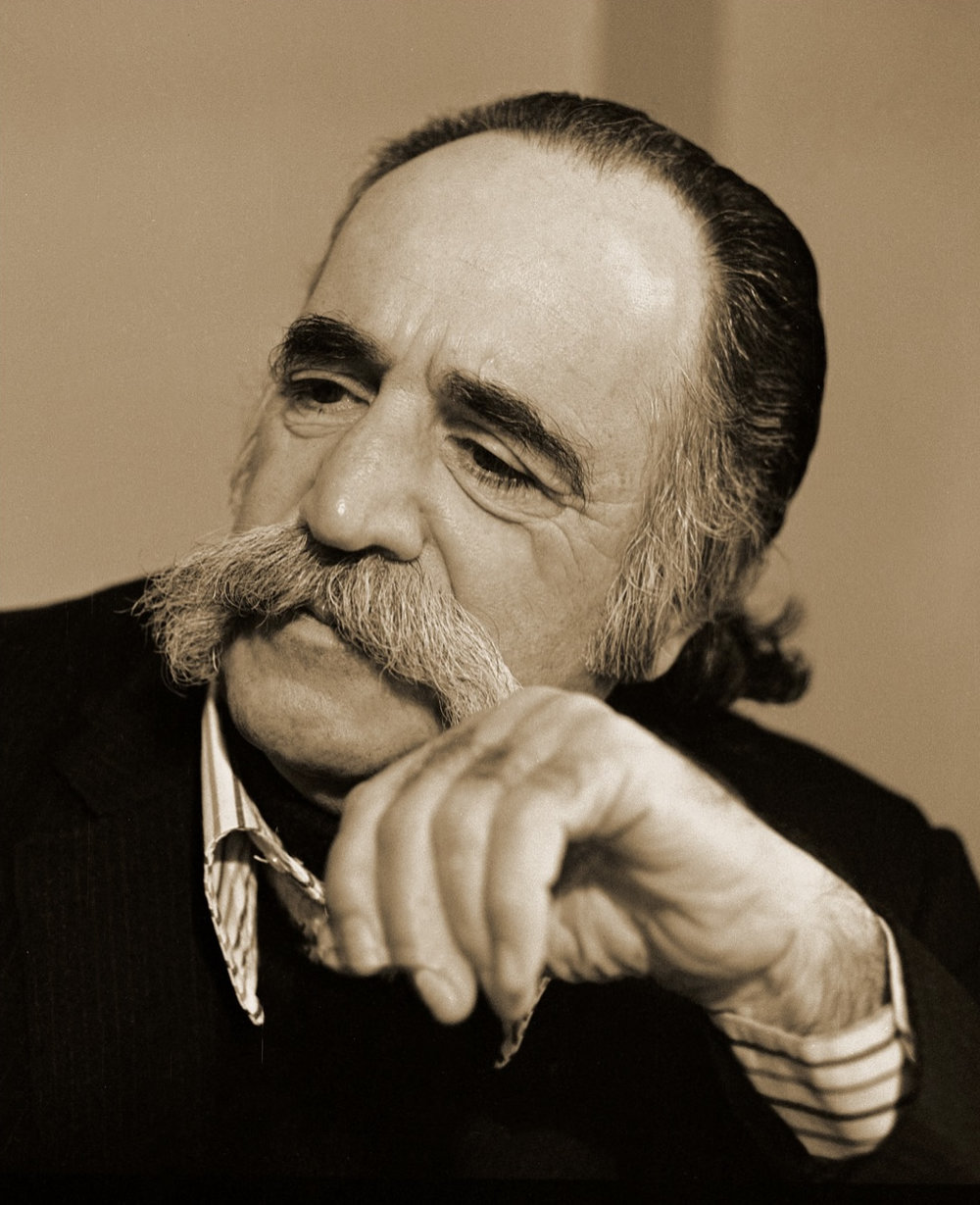
William Saroyan was an Armenian-American author, dramatist, and short story writer. He was awarded the Pulitzer Prize for Drama in 1940, and in 1943 won the Academy Award for Best Story for the film The Human Comedy. On May 18, 1981, he died of prostate cancer at the age of 72. "Everybody has got to die," he used to said, "but I have always believed an exception would be made in my case. Now what?" William Saroyan died, an artistic era ended. He loved America, but he did not forget Armenia.
ABOUT THE AUTHOR

William Saroyan was an Armenian-American author, dramatist, and short story writer. He was awarded the Pulitzer Prize for Drama in 1940, and in 1943 won the Academy Award for Best Story for the film The Human Comedy. On May 18, 1981, he died of prostate cancer at the age of 72. "Everybody has got to die," he used to said, "but I have always believed an exception would be made in my case. Now what?" William Saroyan died, an artistic era ended. He loved America, but he did not forget Armenia.
EXPLANATION
William Saroyan ek Armenian-American lekhak, natakakaar aur laghu kathakaar the. Unhe 1940 mein naatak ke liye Pulitzer puraskaar se sammaanit kiya gaya, aur unhone 1943 mein film 'The human comedy' ki sarvashreshth kahaani ke liye Academy puraskaar jeeta. 18th May, 1981 ko, vah 72 saal ki umar mein prostate cancer se mar gaye. "Har kisi ko marna hota hai," vah kehte the, "Lekin mene hamesha maana hai ki mere maamle mein ek apvaad banaya jaega. Ab kya?" William Saroyan ki mrityu ho gayi, ek kalaatmak yug samaapt ho gaya. Vah America se pyaar karte the, lekin vah Armenia ko kabhi nahi bhoole the.
EXPLANATION
विलियम सरॉयन एक अर्मेनियाई-अमेरिकी लेखक, नाटककार और लघु कथाकार थे। उन्हें 1940 में नाटक के लिए पुलित्जर पुरस्कार से सम्मानित किया गया, और उन्होंने 1943 में फिल्म 'द ह्यूमन कॉमेडी' की सर्वश्रेष्ठ कहानी के लिए अकादमी पुरस्कार जीता। 18 मई, 1981 को, वह 72 साल की उम्र में प्रोस्टेट कैंसर से मर गए। "हर किसी को मरना होता है," वह कहा करते थे, "लेकिन मैंने हमेशा माना है कि मेरे मामले में एक अपवाद बनाया जाएगा। अब क्या?" विलियम सरॉयन की मृत्यु हो गई, एक कलात्मक युग समाप्त हो गया। वह अमेरिका से प्यार करते थे, लेकिन वह आर्मेनिया को कभी नहीं भूले।
PARAGRAPH 1

One day back there in the good old days when I was nine and the world was full of every imaginable kind of magnificence, and life was still a delightful and mysterious dream, my cousin Mourad, who was considered crazy by everybody who knew him except me, came to my house at four in the morning and woke me up tapping on the window of my room.
PARAGRAPH 1

One day back there in the good old days when I was nine and the world was full of every imaginable kind of magnificence, and life was still a delightful and mysterious dream, my cousin Mourad, who was considered crazy by everybody who knew him except me, came to my house at four in the morning and woke me up tapping on the window of my room.
IMPORTANT WORDS
Magnificence: the quality of being magnificent, भव्यता, वैभव
Delightful: causing delight; charming, आनंदप्रद
Mysterious: that you do not understand or cannot explain; strange, समझने या समझाने से परे; अद्भुत, रहस्यमय
IMPORTANT WORDS
Magnificence: the quality of being magnificent, भव्यता, वैभव
Delightful: causing delight; charming, आनंदप्रद
Mysterious: that you do not understand or cannot explain; strange, समझने या समझाने से परे; अद्भुत, रहस्यमय
EXPLANATION
Ache purane dino mein jab main 9 saal ka tha aur duniya har tarah ki bhavyta se bhari thi, aur jeevan abhi bhi ek ramneey (delightful) aur rahasyamay (mysterious) sapna tha. Ek din mera chachera bhai Mourad, jisse mere alawa jo koyi jaanta tha paagal samajhta tha. Subah chaar baje mere ghar aaya aur mujhe mere kamre ki khidki par khatkaakar jagaya.
EXPLANATION
अच्छे पुराने दिनों में जब मैं नौ साल का था और दुनिया हर तरह की भव्यता से भरी थी, और जीवन अभी भी एक रमणीय और रहस्यमय सपना था। एक दिन मेरा चचेरे भाई मौराड, जिसे मेरे आलावा जो कोई जानता था पागल समझता था। सुबह चार बजे मेरे घर आया और मुझे मेरी कमरे की खिड़की पर खटकाकर जगाया।
PARAGRAPH 2
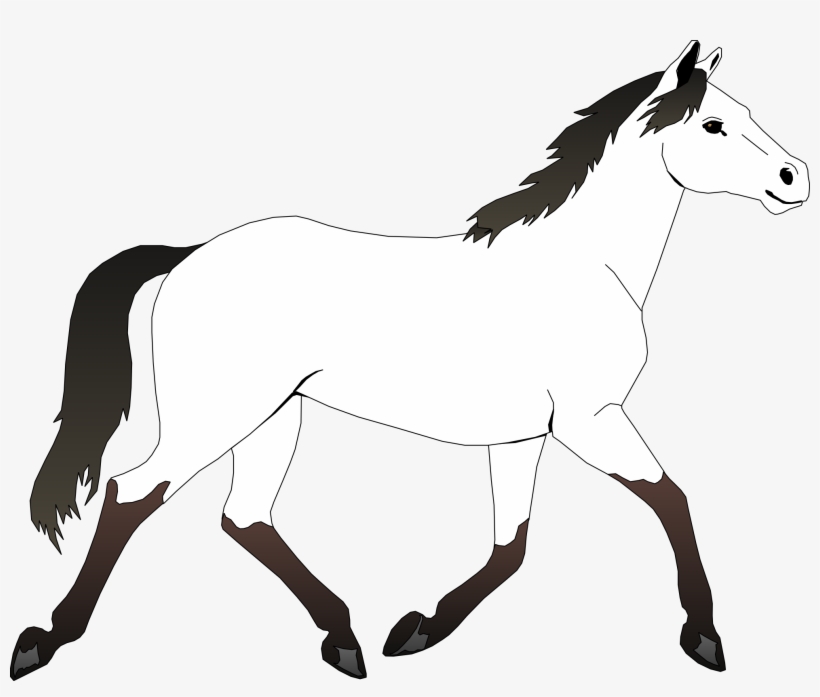
Aram, he said.
I jumped out of bed and looked out of the window.
I couldn’t believe what I saw.
It wasn’t morning yet, but it was summer and with daybreak not many minutes around the corner of the world it was light enough for me to know I wasn’t dreaming.
My cousin Mourad was sitting on a beautiful white horse. I stuck my head out of the window and rubbed my eyes.
Yes, he said in Armenian. It’s a horse. You’re not dreaming. Make it quick if you want to ride.
PARAGRAPH 2

Aram, he said.
I jumped out of bed and looked out of the window.
I couldn’t believe what I saw.
It wasn’t morning yet, but it was summer and with daybreak not many minutes around the corner of the world it was light enough for me to know I wasn’t dreaming.
My cousin Mourad was sitting on a beautiful white horse. I stuck my head out of the window and rubbed my eyes.
Yes, he said in Armenian. It’s a horse. You’re not dreaming. Make it quick if you want to ride.
IMPORTANT WORDS
Armenian: language of the people of Armenia,आर्मेनिया के लोगों की भाषा
IMPORTANT WORDS
Armenian: language of the people of Armenia,आर्मेनिया के लोगों की भाषा
EXPLANATION
Aram, usne kaha.
Mene bistar se chalaang lagayi aur khidki se baahar dekha.
Mujhe vishwaas nahi hua ki mene kya dekha.
Abhi tak subah nahi hui thi, lekin garmi ka mausam tha aur din hone mein kuch minute the, mere liye yah janne ke liye kaafi roshani thi ki main sapna nahi dekh raha tha.
Mera chachera bhai Mourad ek sundar safed ghode par baitha tha. Mene apna sir khidki se baahar nikala aur apni aankhein mali.
Haan, usne Armenian mein kaha. Yah ek ghoda hai. Tum sapna nahi dekh rahe ho, yadi tum iski sawari karna chahte ho to jaldi karo.
EXPLANATION
अराम, उसने कहा।
मैंने बिस्तर से छलांग लगाई और खिड़की से बाहर देखा।
मुझे विश्वास नहीं हुआ कि मैंने क्या देखा।
अभी तक सुबह नहीं हुई थी, लेकिन गर्मी थी और दिन होने में कुछ मिनट थे, मेरे लिए यह जानने के लिए काफी रौशनी थी कि मैं सपने नहीं देख रहा था।
मेरा चचेरा भाई मौराड एक सुंदर सफेद घोड़े पर बैठा था। मैंने अपना सिर खिड़की से बाहर निकला और अपनी आँखें मली।
हां, उसने अर्मेनियाई में कहा। यह एक घोड़ा है। तुम सपना नहीं देख रहे हो यदि तुम इसकी सवारी करना चाहते हो तो जल्दी करो।
PARAGRAPH 3
I knew my cousin Mourad enjoyed being alive more than anybody else who had ever fallen into the world by mistake, but this was more than even I could believe.
In the first place, my earliest memories had been memories of horses and my first longings had been longings to ride.
This was the wonderful part.
PARAGRAPH 3
I knew my cousin Mourad enjoyed being alive more than anybody else who had ever fallen into the world by mistake, but this was more than even I could believe.
In the first place, my earliest memories had been memories of horses and my first longings had been longings to ride.
This was the wonderful part.
IMPORTANT WORDS
Longings: to want something very much, especially something that is not likely, किसी वस्तु की बहुत चाह होना (विशेषतः जब संभावना अनुकूल न हो)
IMPORTANT WORDS
Longings: to want something very much, especially something that is not likely, किसी वस्तु की बहुत चाह होना (विशेषतः जब संभावना अनुकूल न हो)
EXPLANATION
Mujhe pata tha ki Mourad ko kisi bhi aur ki tulna mein jeewan ko jeene mein maza aata hai, lekin mein yah dekhke iss par vishwaas nahi kar paa raha tha.
Pehli baat, meri sabse purani yaadein ghodon ki yaadein thi aur meri pehli wish us par savaari karne ki chahat thi.
Yah kahani ka adbhut hissa tha.
EXPLANATION
मुझे पता था कि मौराड को किसी भी और की तुलना में जीवन को जीने में मज़ा आता है, लेकिन में यह देख के इस पर विश्वास नहीं कर पा रहा था।
पहेली बात, मेरी सबसे पुरानी यादें घोड़ों की यादें थीं और मेरी पहली इच्छा उस पर सवारी करने की लालसा थी।
यह कहानी का अद्भुत हिस्सा था।
PARAGRAPH 4

In the second place, we were poor.
This was the part that wouldn’t permit me to believe what I saw. We were poor. We had no money. Our whole tribe was poverty stricken. Every branch of the Garoghlanian family was living in the most amazing and comical poverty in the world. Nobody could understand where we ever got money enough to keep us with food in our bellies, not even the old men of the family. Most important of all, though, we were famous for our honesty. We had been famous for our honesty for something like eleven centuries, even when we had been the wealthiest family in what we liked to think was the world. We were proud first, honest next, and after that we believed in right and wrong. None of us would take advantage of anybody in the world, let alone steal.
PARAGRAPH 4

In the second place, we were poor.
This was the part that wouldn’t permit me to believe what I saw. We were poor. We had no money. Our whole tribe was poverty stricken. Every branch of the Garoghlanian family was living in the most amazing and comical poverty in the world. Nobody could understand where we ever got money enough to keep us with food in our bellies, not even the old men of the family. Most important of all, though, we were famous for our honesty. We had been famous for our honesty for something like eleven centuries, even when we had been the wealthiest family in what we liked to think was the world. We were proud first, honest next, and after that we believed in right and wrong. None of us would take advantage of anybody in the world, let alone steal.
IMPORTANT WORDS
Comical: that makes you laugh; funny, हास्यकर; विनोदक
Garoghlanian: A tribe from Armenia, आर्मेनिया की एक जनजाति
Poverty stricken: very poor, बहुत ग़रीब, ग़रीबी का मारा, अभावग्रस्त
IMPORTANT WORDS
Comical: that makes you laugh; funny, हास्यकर; विनोदक
Garoghlanian: A tribe from Armenia, आर्मेनिया की एक जनजाति
Poverty stricken: very poor, बहुत ग़रीब, ग़रीबी का मारा, अभावग्रस्त
EXPLANATION
Doosri baat, hum gareeb the.
Yah vo baat thi jo mujhe yakeen karne ki anumati nahi deti jo mene khidki ke bahaar dekha. Hum gareeb the, humaare paas paise nahi the. Humari poori jamaat gareebi se trast thi. Garoghlanian parivaar ke saare parivaar duniya mein sabse aashcharyajanak aur haasya gareebi mein jee rahe the. Kisi ko bhi samajh nahi aa raha tha ki humare paas itna paisa kahaan hai ki vah humara pet bhar sake, parivaar ke budhe logo ko bhi nahi. Halanki, sabse mahatvapurn, hum apni imaandaari ke liye prasidh the. Hum apni imaandaari ke liye kuch gyaarah (11) shatabdiyon se prasiddh the, tab bhi jab hum duniya mein sabse ameer parivaar the. Hum pehle proud the, fir imaandaar, aur uske baad hum sahi aur galat mein vishvaas karte the. Hum mein se koi bhi duniya mein kisi ka faaida nahi uthaega, chori karna toh door ki baat thi.
EXPLANATION
दूसरी बात, हम गरीब थे।
यह वो बात थी जो मुझे यकीन करने की अनुमति नहीं देती जो मैंने खिड़की के बहार देखा। हम गरीब थे, हमारे पास पैसे नहीं थे। हमारी पूरी जमात गरीबी से त्रस्त थी। गारोघ्लान परिवार के सारे परिवार दुनिया में सबसे आश्चर्यजनक और हास्य गरीबी में जी रही थे। किसी को भी समझ नहीं आ रहा था कि हमारे पास इतना पैसा कहाँ है कि वह हमारा पेट भर सके, परिवार के बूढ़े लोगों को भी नहीं। हालाँकि, सबसे महत्वपूर्ण, हम अपनी ईमानदारी के लिए प्रसिद्ध थे। हम अपनी ईमानदारी के लिए कुछ ग्यारह शताब्दियों से प्रसिद्ध थे, तब भी जब हम दुनिया में सबसे अमीर परिवार थे । हमें पहले गर्व था, अगले पर ईमानदारी, और उसके बाद हम सही और गलत में विश्वास करते थे। हम में से कोई भी दुनिया में किसी का फायदा नहीं उठाएगा, चोरी करना तोह दूर की बात थी।
PARAGRAPH 5
Consequently, even though I could see the horse, so magnificent; even though I could smell it, so lovely; even though I could hear it breathing, so exciting; I couldn’t believe the horse had anything to do with my cousin Mourad or with me or with any of the other members of our family, asleep or awake, because I knew my cousin Mourad couldn’t have bought the horse, and if he couldn’t have bought it he must have stolen it, and I refused to believe he had stolen it. No member of the Garoghlanian family could be a thief.
PARAGRAPH 5
Consequently, even though I could see the horse, so magnificent; even though I could smell it, so lovely; even though I could hear it breathing, so exciting; I couldn’t believe the horse had anything to do with my cousin Mourad or with me or with any of the other members of our family, asleep or awake, because I knew my cousin Mourad couldn’t have bought the horse, and if he couldn’t have bought it he must have stolen it, and I refused to believe he had stolen it. No member of the Garoghlanian family could be a thief.
IMPORTANT WORDS
Consequently: as a result, फलस्वरूप
Magnificent: extremely impressive and attractive, अत्यधिक प्रभावशाली और आकर्षक, भव्य, शानदार
IMPORTANT WORDS
Consequently: as a result, फलस्वरूप
Magnificent: extremely impressive and attractive, अत्यधिक प्रभावशाली और आकर्षक, भव्य, शानदार
EXPLANATION
Issi vajah se, bhale hi mein ghode ko dekh sakta tha, itna shaandaar; bhale hi mein isse soongh sakta tha, itna pyaara; bhale hi main isse saans lete hue bhi sun sakta tha, itna romaanchak; mujhe vishwaas nahi ho raha tha ki iss ghode ka mere chachere bhai Mourad ya mere saath ya humare parivaar ke kisi anya sadasy, sote hue ya jage hue, ke saat koi lena-dena tha, kyunki mujhe pata tha ki mere chachere bhai Mourad ne ghoda nahi khareeda hai, aur yadi isne isse khareeda nahi hai toh churaya hai, lekin mene yah maanne se inkaar kar diya ki usne isse churaaya hai. Garoghlanian parivaar ka koi bhi sadasy chor nahi ho sakta hai.
EXPLANATION
इस वजह से, भले ही मैं घोड़े को देख सकता था, इतना शानदार; भले ही मैं इसे सूंघ सकता था, इतना प्यारा; भले ही मैं इसे साँस लेते हुए भी सुन सकता था, इतना रोमांचक; मुझे विश्वास नहीं हो रहा था कि इस घोड़े का मेरे चचेरे भाई मौराड या मेरे साथ या हमारे परिवार के किसी अन्य सदस्य, सोते हुए या जगे हुए, के साथ कोई लेना-देना था, क्योंकि मुझे पता था कि मेरे चचेरे भाई मौराड ने घोड़ा नहीं खरीदा है, और यदि इसने इसे ख़रीदा नहीं है तो चुराया है, लेकिन मैंने यह मानने से इनकार कर दिया कि उसने इसे चुराया है। गारग्लानियन परिवार का कोई भी सदस्य चोर नहीं हो सकता है।
PARAGRAPH 6
I stared first at my cousin and then at the horse. There was a pious stillness and humour in each of them which on the one hand delighted me and on the other frightened me.
Mourad, I said, where did you steal this horse?
Leap out of the window, he said, if you want to ride.
It was true, then. He had stolen the horse. There was no question about it. He had come to invite me to ride or not, as I chose.
PARAGRAPH 6
I stared first at my cousin and then at the horse. There was a pious stillness and humour in each of them which on the one hand delighted me and on the other frightened me.
Mourad, I said, where did you steal this horse?
Leap out of the window, he said, if you want to ride.
It was true, then. He had stolen the horse. There was no question about it. He had come to invite me to ride or not, as I chose.
IMPORTANT WORDS
Pious: having or showing a deep belief in religion, धर्म में गहरा विश्वास करने या प्रदर्शित करने वाला; भक्त, धर्मपरायण
Humour: the funny or amusing qualities of somebody/something, व्यक्ति या वस्तु के विचित्र या हास्यजनक गुण
IMPORTANT WORDS
Pious: having or showing a deep belief in religion, धर्म में गहरा विश्वास करने या प्रदर्शित करने वाला; भक्त, धर्मपरायण
Humour: the funny or amusing qualities of somebody/something, व्यक्ति या वस्तु के विचित्र या हास्यजनक गुण
EXPLANATION
Mene pehle apne chachere bhai aur phir ghode ko dekha. Unme se pratyek mein ek pavitr shaanti aur haasy tha jo ek oor mujhe prasan karta tha aur doosri oor mujhe daraya karta tha.
Mourad, mene kaha, tumne yah ghoda kahaan se churaya?
Khidki ke bahaar kood jao, usne kaha, yadi tum iski sawari karna chaahte ho.
Yah sach tha. Usne ghoda churaya tha. Iske baare mein koi sawaal hi nahi tha. Vah mujhe sawari ke liye aamantrit karne aaya tha, faisla mera tha.
EXPLANATION
मैंने पहले अपने चचेरे भाई और फिर घोड़े को देखा। उनमें से प्रत्येक में एक पवित्र शांति और हास्य था जो एक ओर मुझे प्रसन्न करता था और दूसरी ओर मुझे भयभीत करता था।
मौराड, मैंने कहा, तुमने यह घोड़ा कहां से चुराया?
खिड़की के बाहर कूद जाओ, उसने कहा, यदि तुम इसकी सवारी करना चाहते हो।
यह सच था। उसने घोड़ा चुराया था। इसके बारे में कोई सवाल ही नहीं था। वह मुझे सवारी के लिए आमंत्रित करने आया था, फ़ैसला मेरा था।
PARAGRAPH 7
Well, it seemed to me stealing a horse for a ride was not the same thing as stealing something else, such as money. For all I knew, maybe it wasn’t stealing at all. If you were crazy about horses the way my cousin Mourad and I were, it wasn’t stealing. It wouldn’t become stealing until we offered to sell the horse, which of course, I knew we would never do.
PARAGRAPH 7
Well, it seemed to me stealing a horse for a ride was not the same thing as stealing something else, such as money. For all I knew, maybe it wasn’t stealing at all. If you were crazy about horses the way my cousin Mourad and I were, it wasn’t stealing. It wouldn’t become stealing until we offered to sell the horse, which of course, I knew we would never do.
EXPLANATION
Khair, mujhe aisa lag raha tha ki ek ghode ko sawari karne ke liye churaana kisi aur cheez ko chori karne jaisi baat nahi thi, jaise ki paise. Jitna mujhe pata tha, uss hisaab se shaayad yah chori nahi thi. Agar aap mere chachere bhai Mourad aur meri tarah ghodon ke baare mein paagal hote, to yah chori nahi thi. Jab tak hum ghode ko bechne ki koshish nahi karte, tab tak yah chori nahi hogi, jo mujhe pata tha ki hum kabhi nahi karenge.
EXPLANATION
खैर, मुझे ऐसा लग रहा था कि एक घोड़े को सवारी करने के लिए चुराना किसी और चीज को चोरी करने जैसी बात नहीं थी, जैसे कि पैसे। जितना मुझे पता था, उस हिसाब से शायद यह चोरी नहीं थी। अगर आप मेरे चचेरे भाई मौराड और मेरी तरह घोड़ों के बारे में पागल होते, तो यह चोरी नहीं थी। जब तक हम घोड़े को बेचने की पेशकश नहीं करते, तब तक यह चोरी नहीं होगी, जो मुझे पता था कि हम कभी नहीं करेंगे।
PARAGRAPH 8
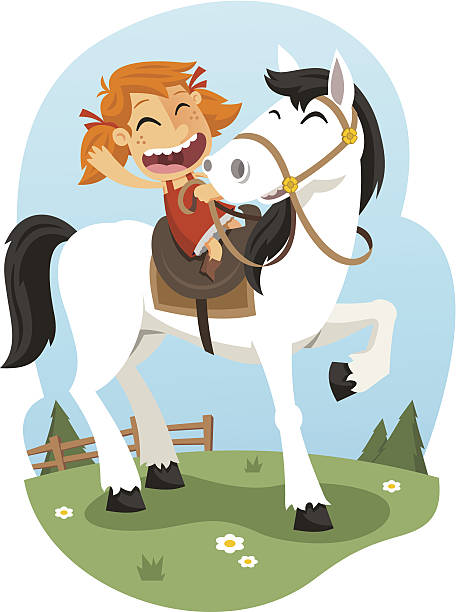
Let me put on some clothes, I said.
All right, he said, but hurry.
I leaped into my clothes.
I jumped down to the yard from the window and leaped up onto the horse behind my cousin Mourad.
PARAGRAPH 8

Let me put on some clothes, I said.
All right, he said, but hurry.
I leaped into my clothes.
I jumped down to the yard from the window and leaped up onto the horse behind my cousin Mourad.
IMPORTANT WORDS
Leaped: to jump high or a long way, ऊँची या लंबी छलाँग लगाना
IMPORTANT WORDS
Leaped: to jump high or a long way, ऊँची या लंबी छलाँग लगाना
EXPLANATION
Mujhe kuch kapde pehanne do, mene kaha.
Theek hai, usne kaha, lekin jaldi karo.
Mene apne kapde fataafat pehne.
Mein khidki se yard me neeche kood gaya aur Mourad ke peeche ghode par chadh gaya.
EXPLANATION
मुझे कुछ कपड़े पहनने दो, मैंने कहा।
ठीक है, उसने कहा, लेकिन जल्दी करो।
मैंने अपने कपड़े फटाफट पहने।
मैं खिड़की से यार्ड के लिए नीचे कूद गया और मौराड के पीछे घोड़े पर चढ़ गया।
PARAGRAPH 9
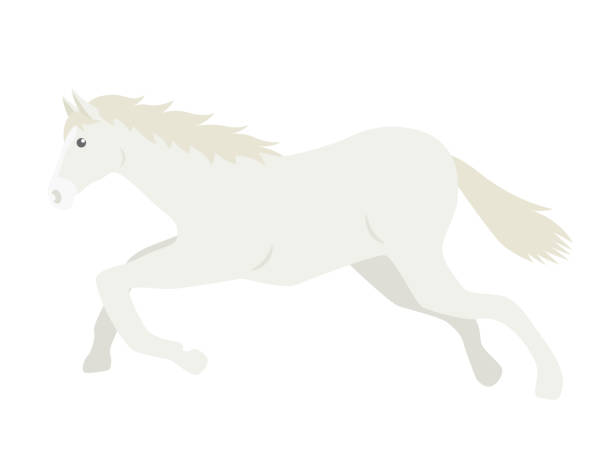
That year we lived at the edge of town, on Walnut Avenue. Behind our house was the country: vineyards, orchards, irrigation ditches, and country roads. In less than three minutes we were on Olive Avenue, and then the horse began to trot. The air was new and lovely to breathe. The feel of the horse running was wonderful. My cousin Mourad who was considered one of the craziest members of our family began to sing. I mean, he began to roar.
PARAGRAPH 9

That year we lived at the edge of town, on Walnut Avenue. Behind our house was the country: vineyards, orchards, irrigation ditches, and country roads. In less than three minutes we were on Olive Avenue, and then the horse began to trot. The air was new and lovely to breathe. The feel of the horse running was wonderful. My cousin Mourad who was considered one of the craziest members of our family began to sing. I mean, he began to roar.
IMPORTANT WORDS
Vineyards: a piece of land where grapes are grown, अंगूर का बाग़
Orchards: a piece of land on which fruit trees are grown, फलों का बाग़, फलोद्यान
Trot: (used about a horse and its rider) to move forward at a speed that is faster than a walk, (घोड़े और घुड़सवार का) दुलकी चाल-चलना (उछल-उछल कर मध्यम गति से चलना)
IMPORTANT WORDS
Vineyards: a piece of land where grapes are grown, अंगूर का बाग़
Orchards: a piece of land on which fruit trees are grown, फलों का बाग़, फलोद्यान
Trot: (used about a horse and its rider) to move forward at a speed that is faster than a walk, (घोड़े और घुड़सवार का) दुलकी चाल-चलना (उछल-उछल कर मध्यम गति से चलना)
EXPLANATION
Uss varsh hum Walnut Avenue par shahar ke kinaare rehte the. Humare ghar ke peeche khet the: angoor ke baag, sinchayi (irrigation) ke liye khayi, aur desh ki sadke. Teen mintute se bhi kam samay mein hum Olive Avenue pahunch gaye the, aur phir ghoda trot (tez chalna) karne laga. Saans lene ke liye hawa vaha nayi aur pyaari thi. Daudte huye ghode par baithne ka ehsaas adbhut tha. Mera chachera bhai Mourad jisse humaare parivaar ke sabse vyast sadasyon mein se ek maana jaata tha, gaana shuroo kar deta hai. Mera matlab hai, vah dahaadne lagta hai.
EXPLANATION
उस वर्ष हम वालनट एवेन्यू पर शहर के किनारे रहते थे। हमारे घर के पीछे खेत थे: अंगूर के बाग, सिंचाई के लिए खाई, और देश की सड़कें। तीन मिनट से भी कम समय में हम ऑलिव एवेन्यू पहुँच गए थे, और फिर घोड़ा ट्रोट (तेज़ चलना) करने लगा। साँस लेने के लिए हवा वहां नई और प्यारी थी। दौड़ते हुए घोड़े पर बैठने का अहसास अद्भुत था। मेरा चचेरा भाई मौराड जिसे हमारे परिवार के सबसे व्यस्त सदस्यों में से एक माना जाता था, गाना शुरू कर देता है। मेरा मतलब है, वह दहाड़ने लगता है।
PARAGRAPH 10

Every family has a crazy streak in it somewhere, and my cousin Mourad was considered the natural descendant of the crazy streak in our tribe. Before him was our uncle Khosrove, an enormous man with a powerful head of black hair and the largest moustache in the San Joaquin Valley, a man so furious in temper, so irritable, so impatient that he stopped anyone from talking by roaring, It is no harm; pay no attention to it.
PARAGRAPH 10

Every family has a crazy streak in it somewhere, and my cousin Mourad was considered the natural descendant of the crazy streak in our tribe. Before him was our uncle Khosrove, an enormous man with a powerful head of black hair and the largest moustache in the San Joaquin Valley, a man so furious in temper, so irritable, so impatient that he stopped anyone from talking by roaring, It is no harm; pay no attention to it.
IMPORTANT WORDS
Enormous: very big or very great, विशाल या अत्यधिक
Descendant: a person who belongs to the same family as somebody who lived a long time ago, वंशज, संतति
Irritable: becoming angry easily, जल्दी क्रुद्घ हो जाने वाला; चिड़चिड़ा
Impatient: not able to stay calm and wait for somebody/something; easily annoyed by somebody/something that seems slow, जो किसी व्यक्ति या वस्तु के लिए शांतिपूर्वक प्रतीक्षा न कर सके, अधीर, आतुर; व्यग्र
Harm: damage or injury, क्षति या चोट
IMPORTANT WORDS
Enormous: very big or very great, विशाल या अत्यधिक
Descendant: a person who belongs to the same family as somebody who lived a long time ago, वंशज, संतति
Irritable: becoming angry easily, जल्दी क्रुद्घ हो जाने वाला; चिड़चिड़ा
Impatient: not able to stay calm and wait for somebody/something; easily annoyed by somebody/something that seems slow, जो किसी व्यक्ति या वस्तु के लिए शांतिपूर्वक प्रतीक्षा न कर सके, अधीर, आतुर; व्यग्र
Harm: damage or injury, क्षति या चोट
EXPLANATION
Har parivaar mein kahi na kahi ek paagal vyakti hota hai, aur mera chachera bhai Mourad ko humari janjaati mein paagal vyakti ka svaabhaavik vanshaj (natural descendant) maana jaata tha. Usse pehle humaare chacha Khosrove the, kaale baalo ke shaktishaali sir ke saath ek vishaal aadmi aur San Joaquin Valley mein sabse badi moonchhen vaale, ek aadmi jo gusse mein itne ugr, itne chidchide, itne adheer the ki vah yah chilla ke kisi ko bhi chup kar dete the: "Yah koi khatra nahi hai; iss par koi dhyaan na de."
EXPLANATION
हर परिवार में कहीं न कहीं एक पागल व्यक्ति होता है, और मेरा चचेरा भाई मौराड को हमारी जनजाति में पागल व्यक्ति का स्वाभाविक वंशज माना जाता था। उस से पहले हमारे चाचा खोस्रोव थे, काले बालों के शक्तिशाली सिर के साथ एक विशाल आदमी और सैन जोकिन घाटी में सबसे बड़ी मूंछें वाले, एक आदमी जो गुस्से में इतने उग्र, इतने चिड़चिड़े, इतने अधीर थे कि वह यह चिल्ला के किसी को भी चुप कर देते थे: "यह कोई खतरा नहीं है; इस पर कोई ध्यान न दें।"
PARAGRAPH 11

That was all, no matter what anybody happened to be talking about. Once it was his own son Arak running eight blocks to the barber’s shop where his father was having his moustache trimmed to tell him their house was on fire. This man Khosrove sat up in the chair and roared, It is no harm; pay no attention to it. The barber said, But the boy says your house is on fire. So Khosrove roared, Enough, it is no harm, I say.
PARAGRAPH 11

That was all, no matter what anybody happened to be talking about. Once it was his own son Arak running eight blocks to the barber’s shop where his father was having his moustache trimmed to tell him their house was on fire. This man Khosrove sat up in the chair and roared, It is no harm; pay no attention to it. The barber said, But the boy says your house is on fire. So Khosrove roared, Enough, it is no harm, I say.
EXPLANATION
Yah sab tha, chaahe koi kuch bhi bole. Ek baar jab unka beta Arak, aath block bhaaga nai ki dukaan (barber’s shop) tak jahaan uske pita moonchh katva rahe the, yah batane ke liye ki unke ghar mein aag lag gayi thi. Yah aadmi Khosrove kursi par baitha aur dahaadne laga, "Yah koi khatra nahi hai; is par koi dhyaan na de." Nai ne kaha, ''Lekin ladka kehta hai ki tumhare ghar mein aag lagi hai". Toh Khosrove chillaaya, "Paryaapt, yah koi khatra nahi hai, mein kehta hu".
EXPLANATION
यह सब था, चाहे कोई कुछ भी बोले। एक बार जब उनका बेटा अरक, आठ ब्लॉक भागा नाई की दूकान तक जहाँ उसके पिता मूँछ कटवा रहे थे, यह बताने के लिए कि उनके घर में आग लग गई थी। यह आदमी खोस्रोव कुर्सी पर बैठा और दहाड़ने लगा, "यह कोई खतरा नहीं है; इस पर कोई ध्यान न दें।" नाई ने कहा, "लेकिन लड़का कहता है कि तुम्हारे घर में आग लगी है।" तो खोस्रोव चिल्लाया, "पर्याप्त, यह कोई खतरा नहीं है, मैं कहता हूं।"
PARAGRAPH 12
My cousin Mourad was considered the natural descendant of this man, although Mourad’s father was Zorab, who was practical and nothing else. That’s how it was in our tribe. A man could be the father of his son’s flesh, but that did not mean that he was also the father of his spirit. The distribution of the various kinds of spirit of our tribe had been from the beginning capricious and vagrant.
PARAGRAPH 12
My cousin Mourad was considered the natural descendant of this man, although Mourad’s father was Zorab, who was practical and nothing else. That’s how it was in our tribe. A man could be the father of his son’s flesh, but that did not mean that he was also the father of his spirit. The distribution of the various kinds of spirit of our tribe had been from the beginning capricious and vagrant.
IMPORTANT WORDS
Capricious: changing behaviour suddenly in a way that is difficult to predict, आचरण या व्यवहार में अचानक आए बदलाव से संबंधित जिसका पूर्वानुमान नहीं किया जा सके; सनकी, झक्की
Vagrant: a person who has no home and no job, especially one who asks people for money, आवारा (बेकार और बेघर तथा दूसरों से पैसा माँगते रहने वाला व्यकि्त)
Descendant: a person who belongs to the same family as somebody who lived a long time ago, वंशज, संतति
Practical: (used about people) making sensible decisions and good at dealing with problems, (व्यक्ति) विवेकी और व्यवहारकुशल
IMPORTANT WORDS
Capricious: changing behaviour suddenly in a way that is difficult to predict, आचरण या व्यवहार में अचानक आए बदलाव से संबंधित जिसका पूर्वानुमान नहीं किया जा सके; सनकी, झक्की
Vagrant: a person who has no home and no job, especially one who asks people for money, आवारा (बेकार और बेघर तथा दूसरों से पैसा माँगते रहने वाला व्यकि्त)
Descendant: a person who belongs to the same family as somebody who lived a long time ago, वंशज, संतति
Practical: (used about people) making sensible decisions and good at dealing with problems, (व्यक्ति) विवेकी और व्यवहारकुशल
EXPLANATION
Mera chachera bhai Mourad ko Khosrove ka swaabhaavik vanshaj (natural descendant) maana jaata tha, halanki Mourad ke pita Zorab the, jo practical the aur kuch nahi. Humaare parivaar mein aisa hi tha. Ek aadmi apne bete ka pita ho sakta hai, lekin iska matlab yah nahi hai ki vah uski aatma ka pita bhi ho. Humaare janjaati ki vibhin prakaar ki aatmaao ka vitran shuru se hi capricious aur aavaara (vagrant) tha.
EXPLANATION
मेरा चचेरा भाई मौराड को खोस्रोव का स्वाभाविक वंशज माना जाता था, हालाँकि मौराड के पिता ज़ोरब थे, जो व्यवहारकुशल थे और कुछ नहीं। हमारे परिवार में ऐसा ही था। एक आदमी अपने बेटे के पिता हो सकता है, लेकिन इसका मतलब यह नहीं है कि वह उसकी आत्मा का पिता भी हो। हमारे जनजाति की विभिन्न प्रकार की आत्माओं का वितरण शुरू से ही शालीन और आवारा था।
PARAGRAPH 13
We rode and my cousin Mourad sang. For all anybody knew we were still in the old country where, at least according to some of our neighbours, we belonged. We let the horse run as long as it felt like running.
PARAGRAPH 13
We rode and my cousin Mourad sang. For all anybody knew we were still in the old country where, at least according to some of our neighbours, we belonged. We let the horse run as long as it felt like running.
EXPLANATION
Humne sawari ki aur Mourad gaata raha. Hum abhi bhi apne purane desh mein hi the jahan hum belong karte the, kam se kam humaare kuch padosiyon ke anusaar. Humne ghode ko daudne diya jab tak use daudne ka mann kara.
EXPLANATION
हमने सवारी की और मौराड गाता रहा। हम अभी भी अपने पुराने देश में ही थे जहाँ से हम संबंधित थे, कम से कम हमारे कुछ पड़ोसियों के अनुसार। हमने घोड़े को दौड़ने दिया जब तक उसे दौड़ने का मन करा।
PARAGRAPH 14
At last my cousin Mourad said, Get down. I want to ride alone.
Will you let me ride alone? I asked.
That is up to the horse, my cousin said. Get down.
The horse will let me ride, I said.
We shall see, he said. Don’t forget that I have a way with a horse.
Well, I said, any way you have with a horse, I have also. For the sake of your safety, he said, let us hope so. Get down. All right, I said, but remember you’ve got to let me try to ride alone.
PARAGRAPH 14
At last my cousin Mourad said, Get down. I want to ride alone.
Will you let me ride alone? I asked.
That is up to the horse, my cousin said. Get down.
The horse will let me ride, I said.
We shall see, he said. Don’t forget that I have a way with a horse.
Well, I said, any way you have with a horse, I have also. For the sake of your safety, he said, let us hope so. Get down. All right, I said, but remember you’ve got to let me try to ride alone.
EXPLANATION
Aakhir mein Mourad ne kaha, "Neeche utro. Mein akele sawari karna chaahta hu."
"Kya tum mujhe akele sawari karne doge?" Mene poocha.
"Yah ghode par nirbhar karta hai", Mourad ne kaha. "Neeche utro."
"Ghoda mujhe sawari karne dega", mene kaha.
"Hum dekhenge", usne kaha. "Yah mat bhulo ki mera ghodo ke saath alag rishta hai."
"Khair", mene kaha, "Jiss bhi tarah ka rishta ho tumhara ghode ke saath, mera bhi hai."
"Tumhaari suraksha ke khaatir", usne kaha, "hum sirf umeed kar sakte hai. Neeche utro." "Theek hai, mene kaha, lekin tum yaad rakhna ki mujhe bhi ghode ki sawari akele karni hai."
EXPLANATION
आखिर में मौराड ने कहा, "नीचे उतरो। मैं अकेले सवारी करना चाहता हूं।"
"क्या तुम मुझे अकेले सवारी करने दोगे?" मैंने पूछा।
"यह घोड़े पर निर्भर करता है", मौराड ने कहा। "नीचे उतरो।"
"घोड़ा मुझे सवारी करने देगा", मैंने कहा।
"हम देखेंगे", उसने कहा। "यह मत भूलो कि मेरा घोड़ो के साथ अलग रिश्ता है।"
"खैर", मैंने कहा, "जिस भी तरह का रिश्ता हो तुम्हारा घोड़े के साथ, मेरा भी है।" "तुम्हारी सुरक्षा के खातिर", उसने कहा, "हम सिर्फ उम्मीद कर सकते है। नीचे उतरो।" "ठीक है", मैंने कहा, "लेकिन तुम याद रखना कि मुझे भी घोड़े की सवारी अकेले करनी है।"
PARAGRAPH 15
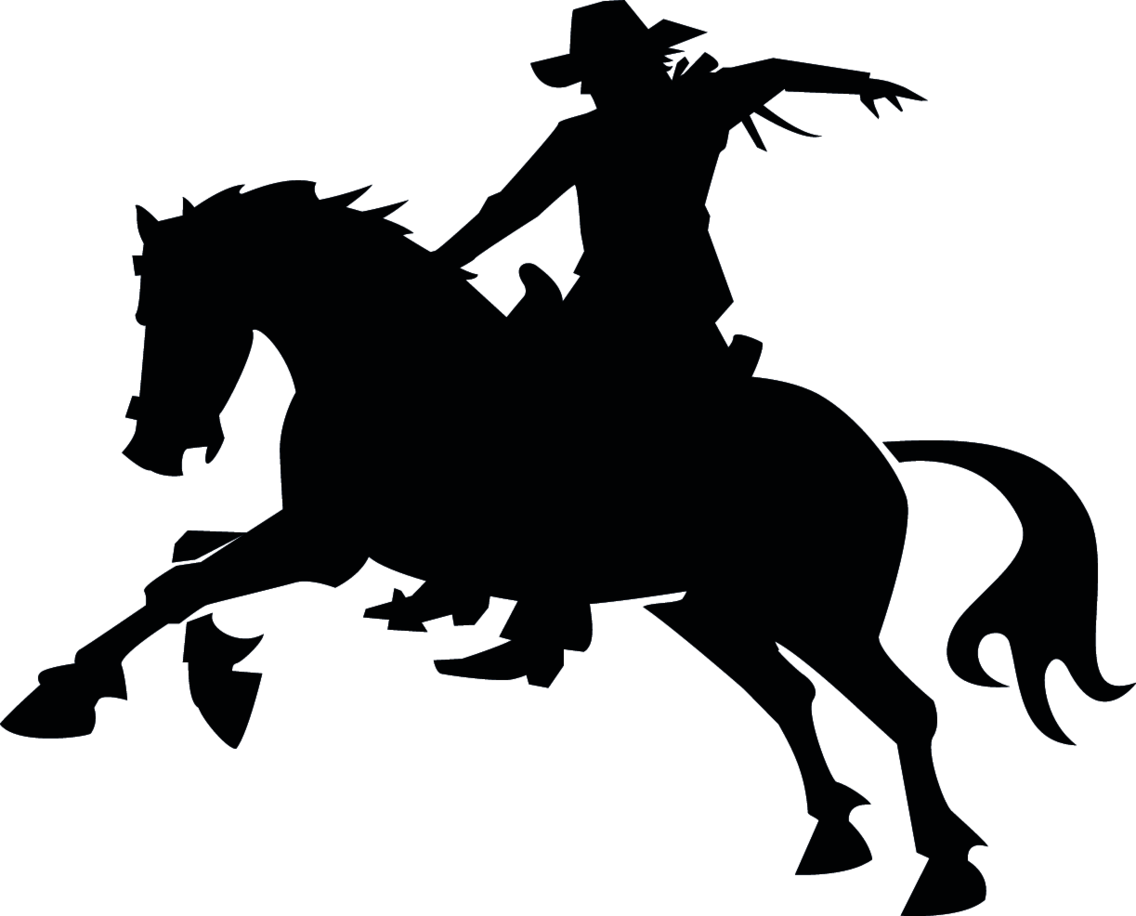
I got down and my cousin Mourad kicked his heels into the horse and shouted, Vazire, run. The horse stood on its legs, snorted, and burst into a fury of speed that was the loveliest thing I had ever seen. My cousin Mourad raced the horse across a field of dry grass to an irrigation ditch, crossed the ditch on the horse, and five minutes later returned, dripping wet.
PARAGRAPH 15

I got down and my cousin Mourad kicked his heels into the horse and shouted, Vazire, run. The horse stood on its legs, snorted, and burst into a fury of speed that was the loveliest thing I had ever seen. My cousin Mourad raced the horse across a field of dry grass to an irrigation ditch, crossed the ditch on the horse, and five minutes later returned, dripping wet.
IMPORTANT WORDS
Snorted: (used about animals) to make a noise by blowing air through the nose and mouth, (पशुओं का) फुफकारना (नाक और मुँह से हवा निकालते हुए आवाज़ करना)
Vazire: In armenian Vazire means to run, आर्मेनियन में वज़ीर का अर्थ दौड़ना होता है।
IMPORTANT WORDS
Snorted: (used about animals) to make a noise by blowing air through the nose and mouth, (पशुओं का) फुफकारना (नाक और मुँह से हवा निकालते हुए आवाज़ करना)
Vazire: In armenian 'Vazire' means to run, आर्मेनियन में वज़ीर का अर्थ दौड़ना होता है।
EXPLANATION
Mein neeche utra aur Mourad apni edhi ghode ko maarte huye chillaaya, "Vazire, bhaago." Ghoda apne pairo par khada hoegaya, usne aawaaz ki, aur tez gati se bhadak utha, yeh meri zindagi ka sabse pyaara anubhav tha. Mourad ne sukhi ghaas ke ek kshetr mein ek sinchayi (irrigation) khayi mein ghode ko daudaaya, ghode par usne khayi ko paar kiya aur paanch minute baad geela vaapas aaya.
EXPLANATION
मैं नीचे उतरा और मौराड अपनी एड़ी घोड़े को मारते हुए चिल्लाया, "वज़ीर, भागो।" घोड़ा अपने पैरों पर खड़ा हो गया, उसने आवाज़ की, और तेज़ गति से भड़क उठा, ये मेरी ज़िन्दगी का सबसे प्यारा अनुभव था। मौराड ने सूखी घास के एक क्षेत्र में एक सिंचाई खाई में घोड़े को दौड़ाया, घोड़े पर उसने खाई को पार किया और पांच मिनट बाद गीला वापस आया।
PARAGRAPH 16
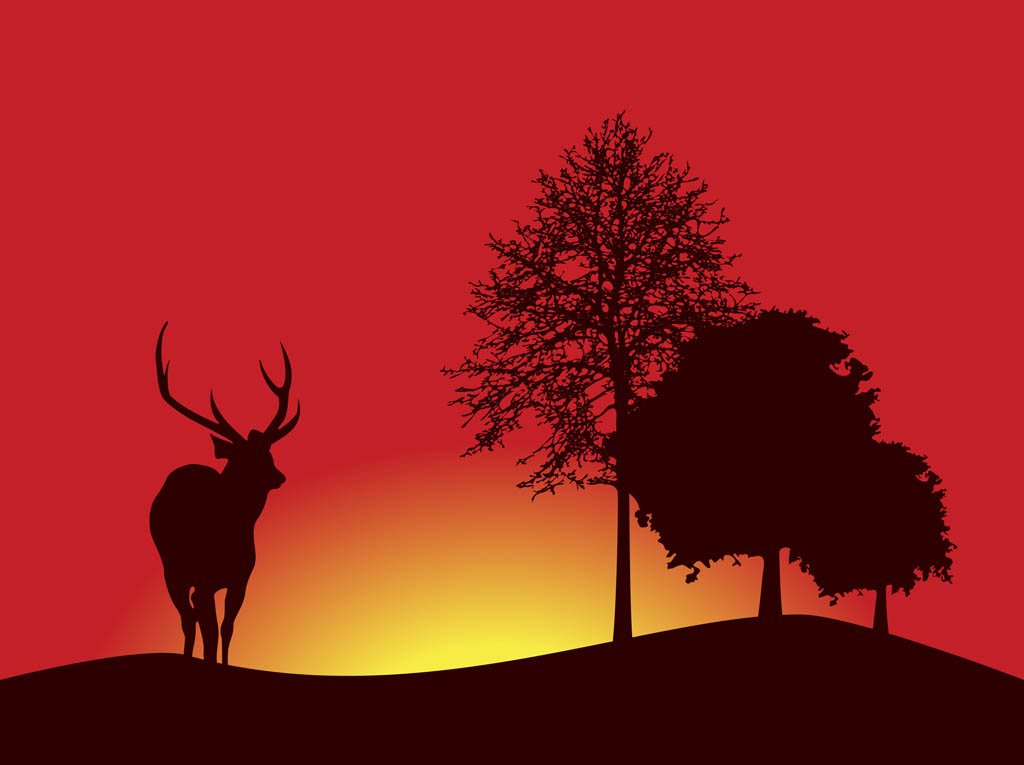
The sun was coming up.
Now it’s my turn to ride, I said.
My cousin Mourad got off the horse.
Ride, he said.
I leaped to the back of the horse and for a moment knew the most awful fear imaginable. The horse did not move.
PARAGRAPH 16

The sun was coming up.
Now it’s my turn to ride, I said.
My cousin Mourad got off the horse.
Ride, he said.
I leaped to the back of the horse and for a moment knew the most awful fear imaginable. The horse did not move.
EXPLANATION
Suraj dhal raha tha.
"Ab meri sawari karne ki baari hai", mene kaha.
Mourad ghode se utar gaya.
"Sawari karo", usne kaha.
Mene ghode ki peeth par chalaang lagayi aur mere saath sabse bhayaanak cheez hui, jiski mein kalpana karne se bhi darta tha. Ghoda apni jagah se nahi hila.
EXPLANATION
सूरज ढल रहा था।
"अब मेरी सवारी करने की बारी है", मैंने कहा।
मौराड घोड़े से उतर गया।
"सवारी करो", उसने कहा।
मैंने घोड़े की पीठ पर छलांग लगाई और मेरे साथ सबसे भयानक चीज़ हुई, जिसकी मैं कल्पना करने से भी डरता था। घोड़ा अपनी जगह से नहीं हिला।
PARAGRAPH 17

Kick into his muscles, my cousin Mourad said. What are you waiting for? We’ve got to take him back before everybody in the world is up and about.
I kicked into the muscles of the horse. Once again it reared and snorted. Then it began to run. I didn’t know what to do. Instead of running across the field to the irrigation ditch the horse ran down the road to the vineyard of Dikran Halabian where it began to leap over vines. The horse leaped over seven vines before I fell. Then it continued running.
PARAGRAPH 17

Kick into his muscles, my cousin Mourad said. What are you waiting for? We’ve got to take him back before everybody in the world is up and about.
I kicked into the muscles of the horse. Once again it reared and snorted. Then it began to run. I didn’t know what to do. Instead of running across the field to the irrigation ditch the horse ran down the road to the vineyard of Dikran Halabian where it began to leap over vines. The horse leaped over seven vines before I fell. Then it continued running.
EXPLANATION
Uske muscles par laat maaro, Mourad ne kaha. Tum kiss ka intezaar kar rahe ho? Hume usse sabke uthne se pehle vaapis le jaana hai.
Mene ghode ki muscles par laat maari. Ek baar phir ghoda apne pairon par kaha hoegaya aur aavaaz ki. Fir vah bhaagne laga. Mujhe nahi pata tha ki kya karna hai. Khet mein daudane ke bajaay ghode ne Dikran Halabian ke daakh ki baari (vineyard) ki oor bhaagna shuru kar diya, jahaan vah bailon (vines) par chalaang lagane laga. Mere girane se pehle ghode ne saat lataon ke upar se chalaang lagayi. Fir vah mujhe gira ke aage bhaagta raha.
EXPLANATION
उसके मांसपेशियों पर लात मारो, मौराड ने कहा। तुम किस का इंतजार कर रहे हो? हमें उसे सबके उठने से पहले वापिस ले जाना है।
मैंने घोड़े की मांसपेशियों पर लात मारी। एक बार फिर घोड़ा अपने पैरों पर खड़ा हो गया और आवाज़ की। फिर वह भागने लगा। मुझे नहीं पता था कि क्या करना है। खेत में दौड़ने के बजाय घोड़े ने डिकरन हलबियन के दाख की बारी की ओर भागना शुरू कर दिया, जहां वह बेलों पर छलांग लगाने लगा। मेरे गिरने से पहले घोड़े ने सात लताओं के ऊपर से छलांग लगाई। फिर वह मुझे गिरा के आगे भागता रहा।
PARAGRAPH 18
My cousin Mourad came running down the road.
I’m not worried about you, he shouted. We’ve got to get that horse. You go this way and I’ll go this way. If you come upon him, be kindly. I’ll be near.
I continued down the road and my cousin, Mourad went across the field toward the irrigation ditch.
PARAGRAPH 18
My cousin Mourad came running down the road.
I’m not worried about you, he shouted. We’ve got to get that horse. You go this way and I’ll go this way. If you come upon him, be kindly. I’ll be near.
I continued down the road and my cousin, Mourad went across the field toward the irrigation ditch.
EXPLANATION
Mourad sadak par bhaagte hue aaya.
Mujhe tumhaari chinta nahi hai, vah chillaya mujhe uss ghode ko pakadna hoga. Tum iss taraf se jao aur main iss taraf se jaunga. Yadi tumhe ghoda milta hai, to kripaya karke mujhe bulana. Mein aas - paas honga.
Mein sadak par chalta raha aur Mourad sinchayi (irrigation) khayi ki oor maidaan mein chala gaya.
EXPLANATION
मौराड सड़क पर भागते हुए आया।
मुझे तुम्हारी चिंता नहीं है, वह चिल्लाया मुझे उस घोड़े को पकड़ना होगा। तुम इस तरफ से जाओ और मैं इस तरफ से जाऊंगा। यदि तुम्हे घोड़ा मिलता है, तो कृपया करके मुझे बुलाना। मैं आस - पास होंगा।
में सड़क पर चलता रहा और मौराड सिंचाई खाई की ओर मैदान में चला गया।
PARAGRAPH 19
It took him half an hour to find the horse and bring him back.
All right, he said, jump on. The whole world is awake now.
What will we do? I said.
Well, he said, we’ll either take him back or hide him until tomorrow morning.
He didn’t sound worried and I knew he’d hide him and not take him back. Not for a while, at any rate.
PARAGRAPH 19
It took him half an hour to find the horse and bring him back.
All right, he said, jump on. The whole world is awake now.
What will we do? I said.
Well, he said, we’ll either take him back or hide him until tomorrow morning.
He didn’t sound worried and I knew he’d hide him and not take him back. Not for a while, at any rate.
EXPLANATION
Ghode ko khojne aur use vaapas laane mein use aadhe ghante ka samay laga.
Theek hai, usne kaha, upar khud ke baitho. Poori duniya ab jaag rahi hai.
Hum kya karenge? mene kaha.
Khair, usne kaha, hum ya to isse vaapas le jaayenge ya kal subah tak chipa ke rakhenge.
Vah chintit nahi tha aur mujhe pata tha ki vah use vaapas nahi dega. Kuch samay ke liye to vah use chipake hi rakhega.
EXPLANATION
घोड़े को खोजने और उसे वापस लाने में उसे आधे घंटे का समय लगा।
ठीक है, उसने कहा, ऊपर खुद के बैठो। पूरी दुनिया अब जाग रही है।
हम क्या करेंगे? मैंने कहा।
खैर, उसने कहा, हम या तो इसे वापस ले जाएंगे या कल सुबह तक छिपा के रखेंगे।
वह चिंतित नहीं था और मुझे पता था कि वह उसे वापस नहीं देगा। कुछ समय के लिए तो वह उसे छिपाके ही रखेगा।
PARAGRAPH 20
Where will we hide him? I said.
I know a place, he said.
How long ago did you steal this horse? I said.
It suddenly dawned on me that he had been taking these early morning rides for some time and had come for me this morning only because he knew how much I longed to ride. Who said anything about stealing a horse? he said.
Anyhow, I said, how long ago did you begin riding every morning?
Not until this morning, he said.
Are you telling the truth? I said.
PARAGRAPH 20
Where will we hide him? I said.
I know a place, he said.
How long ago did you steal this horse? I said.
It suddenly dawned on me that he had been taking these early morning rides for some time and had come for me this morning only because he knew how much I longed to ride. Who said anything about stealing a horse? he said.
Anyhow, I said, how long ago did you begin riding every morning?
Not until this morning, he said.
Are you telling the truth? I said.
IMPORTANT WORDS
Dawned: o become clear (to somebody), कोई बात समझना, स्पष्ट होना
IMPORTANT WORDS
Dawned: to become clear (to somebody), कोई बात समझना, स्पष्ट होना
EXPLANATION
Hum use kahaan chipaenge? mene poocha.
Mujhe ek jagah pata hai, usne kaha.
Tumne kitne samay pehle iss ghode ko churaya tha? mene poocha.
Yah baat achaanak mujh par haavi ho gayi ki vah kuch samay se subah ghode ki sawari kar raha tha aur sirf aaj subah mujhe lene aaya tha kyunki vah jaanta tha ki mujhe ghode ki sawari karne ki kitni ichha thi.
Ghoda churane ke baare mein kisne bola? usne kaha.
Mene kaha, kitni der pehle se tum har subah iski sawari karte ho?
Aaj subah tak nahi, usne kaha.
Kya tum sach bol rahe ho? mene poocha.
EXPLANATION
हम उसे कहां छिपाएंगे? मैंने पूछा।
मुझे एक जगह पता है, उसने कहा।
तुमने कितने समय पहले इस घोड़े को चुराया था? मैंने पुछा।
यह बात अचानक मुझ पर हावी हो गई कि वह कुछ समय से सुबह घोड़े की सवारी कर रहा था और सिर्फ आज सुबह मुझे लेने आया था क्योंकि वह जानता था कि मुझे घोड़े की सवारी करने की कितनी इच्छा थी।
घोड़ा चुराने के बारे में किसने बोला? उसने कहा।
मैंने कहा, कितनी देर पहले से तुम हर सुबह इसकी सवारी करते हो?
आज सुबह तक नहीं, उसने कहा।
क्या तुम सच बोल रहे हो? मैंने पूछा।
PARAGRAPH 21
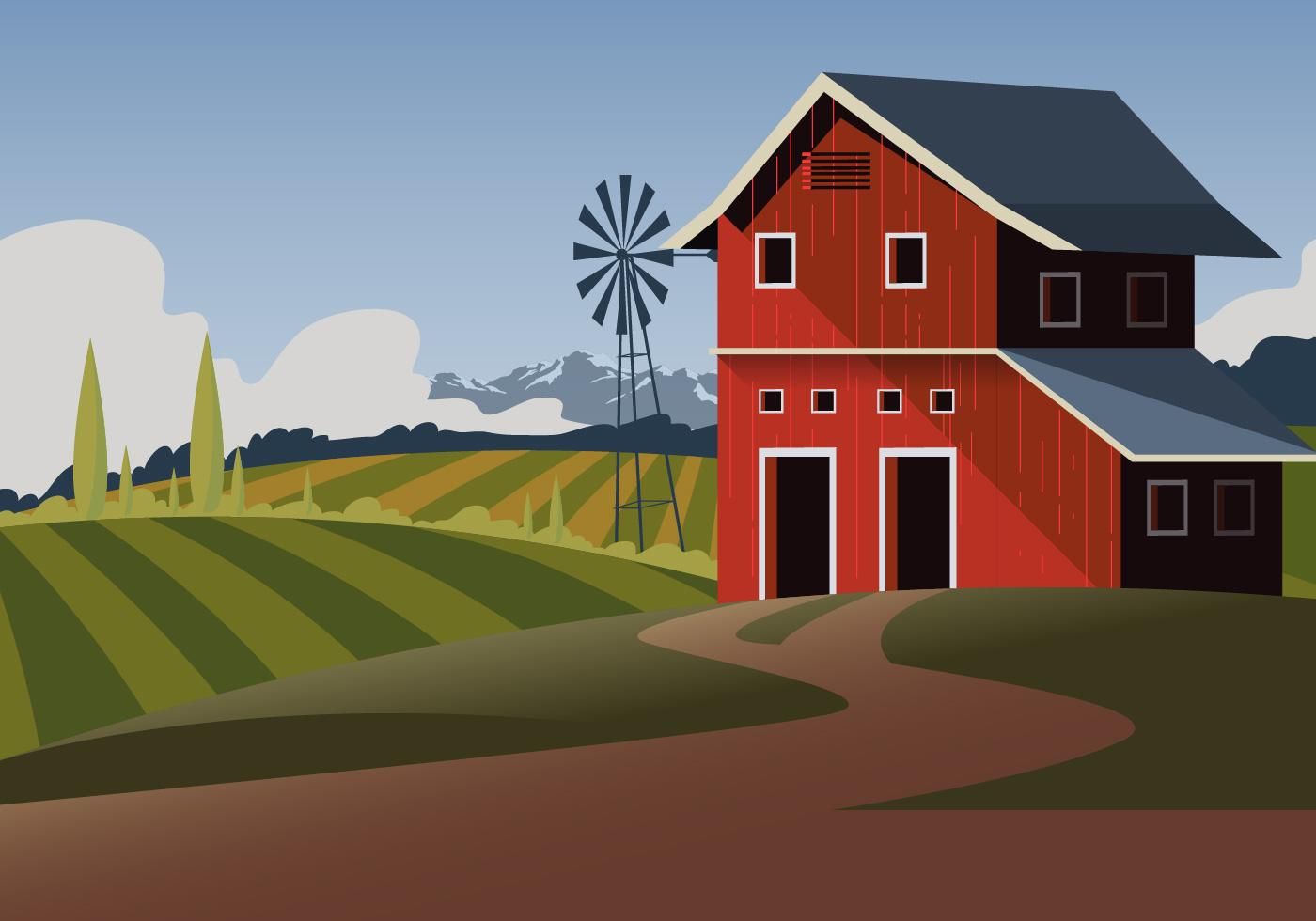
Of course not, he said, but if we are found out, that’s what you’re to say. I don’t want both of us to be liars. All you know is that we started riding this morning.
All right, I said.
He walked the horse quietly to the barn of a deserted vineyard which at one time had been the pride of a farmer named Fetvajian. There were some oats and dry alfalfa in the barn.
We began walking home.
PARAGRAPH 21

Of course not, he said, but if we are found out, that’s what you’re to say. I don’t want both of us to be liars. All you know is that we started riding this morning.
All right, I said.
He walked the horse quietly to the barn of a deserted vineyard which at one time had been the pride of a farmer named Fetvajian. There were some oats and dry alfalfa in the barn.
We began walking home.
IMPORTANT WORDS
Alfalfa: a plant with small divided leaves and purple flowers, grown as food for farm animals and as a salad vegetable, छोटे पत्तों और बैंगनी फूलों युक्त पौधा जो चारे और सलाद पत्ते के रूप में प्रयोग किया जाता है; लसुनघास
Oats: a type of grain that is used as food for people and animals, जई, जुई, जुंदरी (एक प्रकार का अन्न जिससे मनुष्यों और पशुओं के खाद्य पदार्थ बनते हैं)
IMPORTANT WORDS
Alfalfa: a plant with small divided leaves and purple flowers, grown as food for farm animals and as a salad vegetable, छोटे पत्तों और बैंगनी फूलों युक्त पौधा जो चारे और सलाद पत्ते के रूप में प्रयोग किया जाता है; लसुनघास
Oats: a type of grain that is used as food for people and animals, जई, जुई, जुंदरी (एक प्रकार का अन्न जिससे मनुष्यों और पशुओं के खाद्य पदार्थ बनते हैं)
EXPLANATION
Nishchit roop se nahi, usne kaha, lekin agar hum pakde jaate hai tumhe jhoot bolna hoga. Mein nahi chaahta ki hum dono jhoote kehlaye jaye. Tum sirf yah jaante ho ki humne iss ghode ki sawari karna aaj subah shuru kiya.
Theek hai, mene kaha.
Vah ghode ko chupchaap ek sunsaan daakh ki baari (vineyard) ke khalihaan (barn) mein chala kar le gaya jo ki ek samay mein Fetvajian naamak ek kisaan ka tha. Khalihaan mein kuch jai aur sukhi alfalfa the.
Phir hum ghar ki taraf chalne lage.
EXPLANATION
निश्चित रूप से नहीं, उसने कहा, लेकिन अगर हम पकड़े जाते है तुम्हे झूट बोलना होगा। मैं नहीं चाहता कि हम दोनों झूठे कहलाए जाए। तूम सिर्फ यह जानते हो कि हमने इस घोड़े की सवारी करना आज सुबह शुरू किया।
ठीक है, मैंने कहा।
वह घोड़े को चुपचाप एक सुनसान दाख की बारी के खलिहान में चला कर ले गया जो कि एक समय में फतवाजियान नामक एक किसान का था। खलिहान में कुछ जई और सूखी अल्फाल्फा थे।
फिर हम घर की तरफ चलने लगे।
PARAGRAPH 22
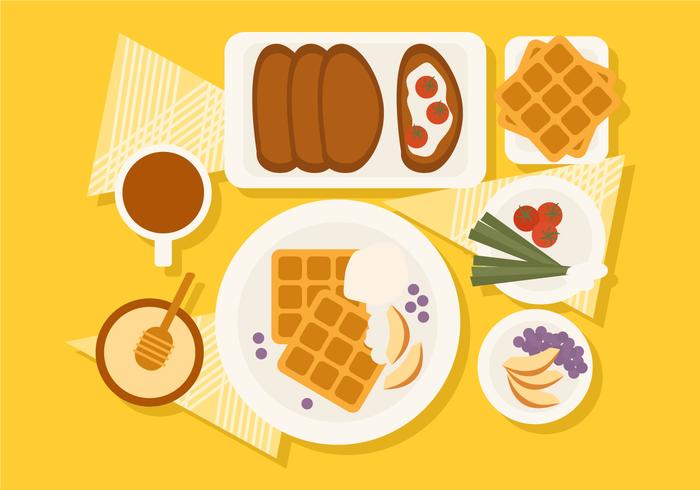
It wasn’t easy, he said, to get the horse to behave so nicely. At first it wanted to run wild, but, as I’ve told you, I have a way with a horse. I can get it to want to do anything I want it to do. Horses understand me.
How do you do it? I said.
I have an understanding with a horse, he said.
Yes, but what sort of an understanding? I said.
A simple and honest one, he said.
Well, I said, I wish I knew how to reach an understanding like that with a horse.
You’re still a small boy, he said. When you get to be thirteen you’ll know how to do it.
I went home and ate a hearty breakfast.
PARAGRAPH 22

It wasn’t easy, he said, to get the horse to behave so nicely. At first it wanted to run wild, but, as I’ve told you, I have a way with a horse. I can get it to want to do anything I want it to do. Horses understand me.
How do you do it? I said.
I have an understanding with a horse, he said.
Yes, but what sort of an understanding? I said.
A simple and honest one, he said.
Well, I said, I wish I knew how to reach an understanding like that with a horse.
You’re still a small boy, he said. When you get to be thirteen you’ll know how to do it.
I went home and ate a hearty breakfast.
IMPORTANT WORDS
Hearty: large; making you feel full, तगड़ा, तीव्र, तेज़; छककर किया जाने वाला (भोजन)
IMPORTANT WORDS
Hearty: large; making you feel full, तगड़ा, तीव्र, तेज़; छककर किया जाने वाला (भोजन)
EXPLANATION
Ghode ko itni achi tarah se sambhalna aasaan nahi tha, usne kaha. Pehle to yah jungle mein bhaagna chaahta tha, lekin jaisa mene tumhe bataaya, mera aur ghoda ka ek alag rishta hai. Mein ghodo se kuch bhi karva sakta hu. Vah mujhe samajhte hain.
Tum yah kaise karte ho? mene kaha.
Mujhe ghodo ki samajh hai, usne kaha.
Haan, lekin kiss tarah ki samajh? mene kaha.
Ek simple aur imaandaar vaali, usne kaha.
Khair, mene kaha, kash mujhe pata hota ki ghode ke saath uss tarah ki samajh kaise paida karte hai. Tum abhi bhi ek chote ladke ho, usne kaha. Jab tum terah (13) saal ke ho jaoge to tum samajh jaoge ki yah kaise karna hai.
Mein ghar gaya aur mene bhar pait naashta khaaya.
EXPLANATION
घोड़े को इतनी अच्छी तरह से संभालना आसान नहीं था, उसने कहा। पहले तो यह जंगल में भागना चाहता था, लेकिन जैसा मैंने तुम्हे बताया, मेरा और घोड़ा का एक अलग रिश्ता है। में घोड़ो से कुछ भी करवा सकता हूं। वह मुझे समझते हैं।
तुम यह कैसे करते हो? मैंने कहा।
मुझे घोड़ों की समझ है, उसने कहा।
हां, लेकिन किस तरह कि समझ? मैंने कहा।
एक सरल और ईमानदार वाली, उसने कहा।
खैर, मैंने कहा, काश मुझे पता होता कि घोड़े के साथ उस तरह कि समझ कैसे पैदा करते है। तुम अभी भी एक छोटे लड़के हो, उसने कहा। जब तुम तेरह साल के हो जाओगे तो तुम समझ जाओगे कि यह कैसे करना है।
मैं घर गया और मेने भर पेट नाश्ता खाया।
PARAGRAPH 23

That afternoon my uncle Khosrove came to our house for coffee and cigarettes. He sat in the parlour, sipping and smoking and remembering the old country. Then another visitor arrived, a farmer named John Byro, an Assyrian who, out of loneliness, had learned to speak Armenian. My mother brought the lonely visitor coffee and tobacco and he rolled a cigarette and sipped and smoked, and then at last, sighing sadly, he said, My white horse which was stolen last month is still gone — I cannot understand it.
PARAGRAPH 23

That afternoon my uncle Khosrove came to our house for coffee and cigarettes. He sat in the parlour, sipping and smoking and remembering the old country. Then another visitor arrived, a farmer named John Byro, an Assyrian who, out of loneliness, had learned to speak Armenian. My mother brought the lonely visitor coffee and tobacco and he rolled a cigarette and sipped and smoked, and then at last, sighing sadly, he said, My white horse which was stolen last month is still gone — I cannot understand it.
EXPLANATION
Uss dopher mere chacha Khosrove coffee aur cigarette peene ke liye humare ghar aaye the. Vah parlour mein baithe, dhoomrapaan kar rahe the aur purane desh ko yaad kar rahe the. Fir ek aur mehmaan ghar aaye, John Byro naamak ek kisaan, ek Assyrian, jo akelepan ki vajah se, Armenian bolna seekh gaye the. Meri maa unn akele vyakti ke liye coffee aur tambaaku le aayi. Unhone ek cigarette lapeta aur coffee pete huye dhoomrapaan karne lage, aur phir aakhirkar, udaas hokar unhone kaha, mera safed ghoda jo pichle mahine chori ho gaya tha, abhi tak nahi mila hai - mein isse nahi samajh paa raha ki vah kahaan gaya.
EXPLANATION
उस दोपहर मेरे चाचा खोस्रोव कॉफी और सिगरेट पीने के लिए हमारे घर आए थे। वह पार्लर में बैठे, धूम्रपान कर रहे थे और पुराने देश को याद कर रहे थे। फिर एक और मेहमान घर आए, जॉन बायरो नामक एक किसान, एक असीरियन, जो अकेलेपन की वजह से, अर्मेनियाई बोलना सीख गए थे। मेरी माँ उन अकेले व्यक्ति के लिए कॉफी और तम्बाकू लेके आई। उन्होंने एक सिगरेट लपेटा और कॉफ़ी पीते हुए धूम्रपान करने लगे, और फिर आख़िरकार, उदास हो कर उन्होंने कहा, मेरा सफेद घोड़ा जो पिछले महीने चोरी हो गया था, अभी तक नहीं मिला है - मैं इसे नहीं समझ पा रहा कि वह कहाँ गया।
PARAGRAPH 24
My uncle Khosrove became very irritated and shouted, It’s no harm. What is the loss of a horse? Haven’t we all lost the homeland? What is this crying over a horse?
PARAGRAPH 24
My uncle Khosrove became very irritated and shouted, It’s no harm. What is the loss of a horse? Haven’t we all lost the homeland? What is this crying over a horse?
EXPLANATION
Mere chacha Khosrove bohot chidh gaye aur chillaye, yah koi nuksaan nahi hai. Ghode ka nuksaan kya hai? Kya hum sabhi ne apni maatrbhoomi (homeland) nahi khoyi? Ghode par yeh kya roo rahe ho?
EXPLANATION
मेरे चाचा खोस्रोव बहुत चिढ़ गए और चिल्लाए, यह कोई नुकसान नहीं है। घोड़े का नुकसान क्या है? क्या हम सभी ने अपनी मातृभूमि नहीं खोई? घोड़े पर यह क्या रो रहे हो?
PARAGRAPH 25

That may be all right for you, a city dweller, to say, John Byro said, but what of my surrey? What good is a surrey without a horse?
Pay no attention to it, my uncle Khosrove roared.
I walked ten miles to get here, John Byro said.
You have legs, my uncle Khosrove shouted.
My left leg pains me, the farmer said.
Pay no attention to it, my uncle Khosrove roared.
That horse cost me sixty dollars, the farmer said.
I spit on money, my uncle Khosrove said.
He got up and stalked out of the house, slamming the screen door.
PARAGRAPH 25

That may be all right for you, a city dweller, to say, John Byro said, but what of my surrey? What good is a surrey without a horse?
Pay no attention to it, my uncle Khosrove roared.
I walked ten miles to get here, John Byro said.
You have legs, my uncle Khosrove shouted.
My left leg pains me, the farmer said.
Pay no attention to it, my uncle Khosrove roared.
That horse cost me sixty dollars, the farmer said.
I spit on money, my uncle Khosrove said.
He got up and stalked out of the house, slamming the screen door.
IMPORTANT WORDS
Surrey: a light four-wheeled carriage pulled by a horse, घोड़े द्वारा खींची गई एक हल्की चौपहिया गाड़ी
IMPORTANT WORDS
Surrey: a light four-wheeled carriage pulled by a horse, घोड़े द्वारा खींची गई एक हल्की चौपहिया गाड़ी
EXPLANATION
John Byro ne kaha, aapke, ek sheharvasi ke liye yah sab kehne ko theek ho sakta hai, lekin meri ghode gadi ka kya? Ghode ke bina ek ghode gadi mein kya acha hai?
Iss par koyi dhyaan na de, mere chacha Khosrove garajte hain.
Main das mile paidal chalkar yahaan pahuncha hu, John Byro ne kaha.
Tumhare paas pair hai, mere chacha Khosrove chillaye.
Mere left pair mein dard hai, kisaan ne kaha.
Iss par koi dhyaan naa de, mere chacha Khosrove garajte hain.
Uss ghode ki keemat sixty dollars thi, kisaan ne kaha.
Main paise par thookta hu, mere chacha Khosrove ne kaha.
Vah uthkar darvaza zor se band karte huye ghar se baahar nikal gaye.
EXPLANATION
जॉन बायरो ने कहा, आपके, एक शहरवासी के लिए यह सब कहने को ठीक हो सकता है, लेकिन मेरी घोड़ा गाड़ी का क्या ? घोड़े के बिना एक घोड़ी गाड़ी में क्या अच्छा है?
इस पर कोई ध्यान न दें, मेरे चाचा खोस्रोव गर्जते हैं।
मैं दस मील पैदल चलकर यहां पहुंचा हु, जॉन बायरो ने कहा।
तुम्हारे पास पैर हैं, मेरे चाचा खोस्रोव चिल्लाए।
मेरे बाएं पैर में दर्द है, किसान ने कहा।
इस पर कोई ध्यान न दें, मेरे चाचा खोस्रोव गर्जते हैं।
उस घोड़े की कीमत साठ डॉलर थी, किसान ने कहा।
मैं पैसे पर थूकता हूं, मेरे चाचा खोस्रोव ने कहा।
वह उठकर दरवाज़ा ज़ोर से बंद करते हुए घर से बाहर निकल गए।
PARAGRAPH 26
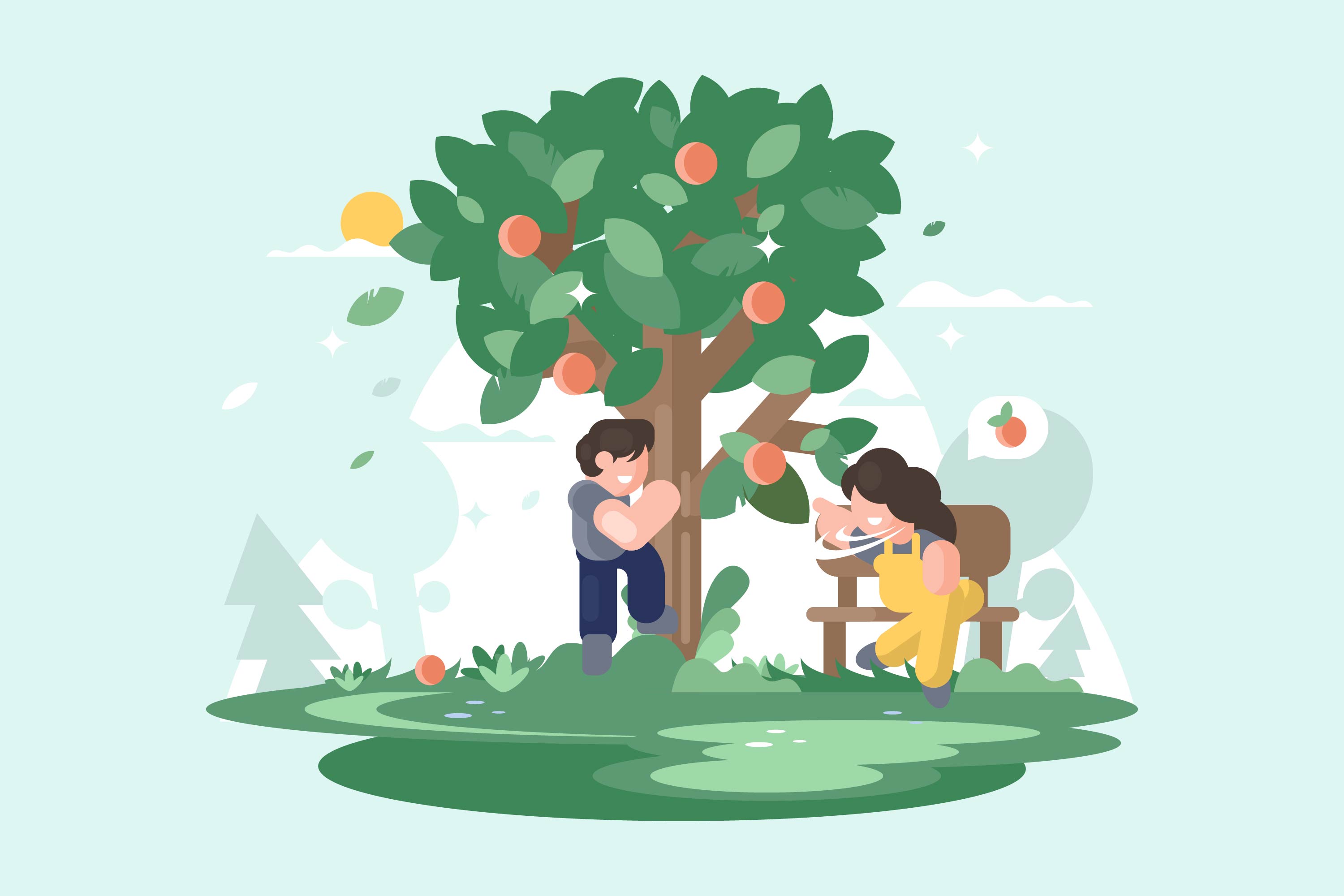
My mother explained.
He has a gentle heart, she said. It is simply that he is homesick and such a large man.
The farmer went away and I ran over to my cousin Mourad’s house.
He was sitting under a peach tree, trying to repair the hurt wing of a young robin which could not fly. He was talking to the bird.
What is it? he said.
PARAGRAPH 26

My mother explained.
He has a gentle heart, she said. It is simply that he is homesick and such a large man.
The farmer went away and I ran over to my cousin Mourad’s house.
He was sitting under a peach tree, trying to repair the hurt wing of a young robin which could not fly. He was talking to the bird.
What is it? he said.
EXPLANATION
Meri maa ne unhe samajhaya.
Unhone kaha, Khosrove vaise to komal dil ke hai. Bas itna hai ki vah ghar ko bohot yaad karte hai aur vah itne bade aadmi hai.
Kisaan chala gaya aur main Mourad ke ghar ki oor bhaaga.
Vah ek peach ke ped ke neeche baitha tha, ek yuva Robin ke pankh pe lage chot ko theek karne ki koshish kar raha tha jo udd nahi paa raha tha. Vah chidiya se baat kar raha tha.
Kya kaam hai? usne poocha.
EXPLANATION
मेरी माँ ने उन्हें समझाया।
उन्होंने खोस्रोव वैसे तो कोमल दिल के है। बस इतना है कि वह घर को बहुत याद करते है और वह इतने बड़े आदमी हैं।
किसान चला गया और मैं मौराड के घर कि ओर भागा।
वह एक आड़ू के पेड़ के नीचे बैठा था, एक युवा रॉबिन के आहत पंख को ठीक करने कि कोशिश कर रहा था जो उड़ नहीं पा रहा था। वह चिड़िया से बात कर रहा था।
क्या काम है? उसने पूछा।
PARAGRAPH 27
The farmer, John Byro, I said. He visited our house. He wants his horse. You’ve had it a month. I want you to promise not to take it back until I learn to ride.
It will take you a year to learn to ride, my cousin Mourad said. We could keep the horse a year, I said.
My cousin Mourad leaped to his feet.
What? he roared. Are you inviting a member of the Garoghlanian family to steal? The horse must go back to its true owner.
When? I said.
In six months at the latest, he said.
He threw the bird into the air. The bird tried hard, almost fell twice, but at last flew away, high and straight.
PARAGRAPH 27
The farmer, John Byro, I said. He visited our house. He wants his horse. You’ve had it a month. I want you to promise not to take it back until I learn to ride.
It will take you a year to learn to ride, my cousin Mourad said. We could keep the horse a year, I said.
My cousin Mourad leaped to his feet.
What? he roared. Are you inviting a member of the Garoghlanian family to steal? The horse must go back to its true owner.
When? I said.
In six months at the latest, he said.
He threw the bird into the air. The bird tried hard, almost fell twice, but at last flew away, high and straight.
EXPLANATION
John Byro vo kisaan, mene kaha. Vah humare ghar aaya tha. Usse apna ghoda chahiye. Tumhare paas ek mahine se tha. Mein chaahta hu ki jab tak mein sawari karna na seekh lu, tab tak tum isse vapas na le jaane ka vaada karo.
Tumhe sawari seekhne mein ek saal lagega, Mourad ne kaha. Hum ghode ko ek saal tak rakh sakte hai, mene kaha.
Mourad ne apne pairon se chalaang laga di.
Kya? vah dahaadta hai. Kya tum Garoghlanian parivaar ke ek sadasy ko chori karne ke liye aamantrit kar rahe ho? Ghode ko apne asli maalik ke paas vapas jaana chahiye.
Kab? mene kaha.
Zyada se zyada cheh mahino mein, usne kaha.
Usne pakshi ko hawa mein phenk diya. Pakshi ne kadi mehnat ki, lagbhag do baar gir bhi gaya, lekin ant mein ucha aur seedhe udd gaya.
EXPLANATION
जॉन बायरो वो किसान, मैंने कहा। वह हमारे घर आया था। उसे अपना घोड़ा चाहिए। तुम्हारे पास एक महीना से था। मैं चाहता हूं कि जब तक में सवारी करना न सीख लू, तब तक तुम इसे वापस न ले जाने का वादा करो।
तुम्हे सवारी सीखने में एक साल लगेगा, मौराड ने कहा। हम घोड़े को एक साल तक रख सकते हैं, मैंने कहा।
मौराड ने अपने पैरों से छलांग लगा दी।
क्या? वह दहाड़ता है। क्या तुम गारोगलियन परिवार के एक सदस्य को चोरी करने के लिए आमंत्रित कर रहे हो? घोड़े को अपने असली मालिक के पास वापस जाना चाहिए।
कब? मैंने कहा।
नवीनतम में छह महीनों में, उसने कहा।
उसने पक्षी को हवा में फेंक दिया। पक्षी ने कड़ी मेहनत की, लगभग दो बार गिर भी गया, लेकिन अंत में उच्च और सीधे उड़ गया।
PARAGRAPH 28
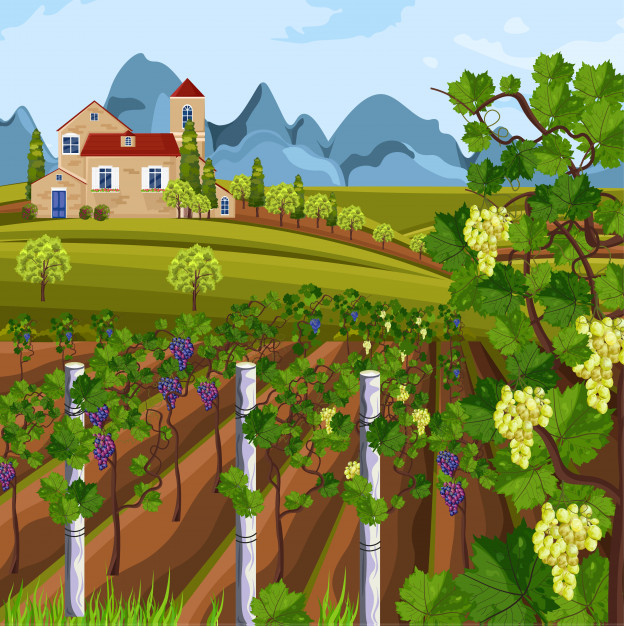
Early every morning for two weeks my cousin Mourad and I took the horse out of the barn of the deserted vineyard where we were hiding it and rode it, and every morning the horse, when it was my turn to ride alone, leaped over grape vines and small trees and threw me and ran away. Nevertheless, I hoped in time to learn to ride the way my cousin Mourad rode.
PARAGRAPH 28

Early every morning for two weeks my cousin Mourad and I took the horse out of the barn of the deserted vineyard where we were hiding it and rode it, and every morning the horse, when it was my turn to ride alone, leaped over grape vines and small trees and threw me and ran away. Nevertheless, I hoped in time to learn to ride the way my cousin Mourad rode.
EXPLANATION
Do saptaah ke liye har subah Mourad aur mein, ghode ko sunsaan daakh ki baari (vineyard) ke khalihaan (barn) se baahar nikalte, jahaan hum usse chipa rahe the aur uski sawari karte, aur har subah jab meri sawari karne ki baari thi, ghoda angoor ki lataon aur chote pedo ke upar chalaang laga deta tha. Aur mujhe fek kar bhaag jaata tha. Fir bhi, mene Mourad ki sawari karne ke tareeke ko seekhne ki ummeed ki.
EXPLANATION
दो सप्ताह के लिए हर सुबह मौराड और में, घोड़े को सुनसान दाख की बारी के खलिहान से बाहर निकालते, जहाँ हम उसे छिपा रहे थे और उसकी सवारी करते, और हर सुबह जब मेरी सवारी करने कि बारी थी, घोड़ा अंगूर की लताओं और छोटे पेड़ो के ऊपर छलांग लगा देता था। और मुझे फेंक कर भाग जाता था। फिर भी, मैंने मौराड की सवारी करने के तरीके को सीखने की उम्मीद की।
PARAGRAPH 29
One morning on the way to Fetvajian’s deserted vineyard we ran into the farmer John Byro who was on his way to town.
Let me do the talking, my cousin Mourad said. I have a way with farmers.
Good morning, John Byro, my cousin Mourad said to the farmer.
The farmer studied the horse eagerly.
PARAGRAPH 29
One morning on the way to Fetvajian’s deserted vineyard we ran into the farmer John Byro who was on his way to town.
Let me do the talking, my cousin Mourad said. I have a way with farmers.
Good morning, John Byro, my cousin Mourad said to the farmer.
The farmer studied the horse eagerly.
EXPLANATION
Fetvajian ke sunsaan daakh ki baari (vineyard) ke raaste mein ek subah hum kisaan John Byro se takra gaye, jo shehar jaa rahe the.
Mujhe baat karne do, Mourad ne kaha. Mere paas kisaano se baat karne ka ek tareeka hai.
Suprabhaat, John Byro, Mourad ne kisaan se kaha.
Kisaan ne ghode ka besabri se adhyan kiya.
EXPLANATION
फतवजियन के निर्जन दाख की बारी के रास्ते में एक सुबह हम किसान जॉन बायरो से टकरा गए, जो शहर जा रहे थे।
मुझे बात करने दो, मौराड ने कहा। मेरे पास किसानों से बात करने का एक तरीका है।
सुप्रभात, जॉन बायरो, मौराड ने किसान से कहा।
किसान ने घोड़े का बेसब्री से अध्ययन किया।
PARAGRAPH 30
Good morning, son of my friends, he said. What is the name of your horse?
My Heart, my cousin Mourad said in Armenian.
A lovely name, John Byro said, for a lovely horse. I could swear it is the horse that was stolen from me many weeks ago. May I look into his mouth?
Of course, Mourad said.
The farmer looked into the mouth of the horse.
Tooth for tooth, he said. I would swear it is my horse if I didn’t know your parents. The fame of your family for honesty is well known to me. Yet the horse is the twin of my horse. A suspicious man would believe his eyes instead of his heart. Good day, my young friends.
PARAGRAPH 30
Good morning, son of my friends, he said. What is the name of your horse?
My Heart, my cousin Mourad said in Armenian.
A lovely name, John Byro said, for a lovely horse. I could swear it is the horse that was stolen from me many weeks ago. May I look into his mouth?
Of course, Mourad said.
The farmer looked into the mouth of the horse.
Tooth for tooth, he said. I would swear it is my horse if I didn’t know your parents. The fame of your family for honesty is well known to me. Yet the horse is the twin of my horse. A suspicious man would believe his eyes instead of his heart. Good day, my young friends.
EXPLANATION
Suprabhaat, mere doston ke beto, unhone kaha. Aapke ghode ka naam kya hai?
Mera dil, Mourad ne Armenian mein kaha.
Ek sundar ghode ke liye ek sundar naam, John Byro ne kaha. Mein kasam kha sakta hu ki yah vah ghoda hai jo kayi hafte pehle mere ghar se churaya gaya tha. Kya mein uske muh mein dekh sakta hoon?
Beshak, Mourad ne kaha.
Kisaan ne ghode ke muh mein dekha.
Ekdam vaise hi, unhone kaha. Yadi mein apne mata-pita ko nahi jaanta to mein yah shapath leta ki yah mera ghoda hai. Imaandaari ke liye aapke parivaar ki prasiddhi mujhe achi tarah se pata hai. Fir bhi yah ghoda mere ghode ka judva hai. Ek sandigdh (suspicious) vyakti apne dil ke bajay apani aankhon par vishvaas karega. Shubh din, mere yuva dosto.
EXPLANATION
सुप्रभात, मेरे दोस्तों के बेटों, उन्होंने कहा। आपके घोड़े का नाम क्या है?
मेरा दिल, मौराड ने अर्मेनियाई में कहा।
एक सुंदर घोड़े के लिए एक सुंदर नाम, जॉन बायरो ने कहा। मैं कसम खा सकता हूं कि यह वह घोड़ा है जो कई हफ्ते पहले मेरे घर से चुराया गया था। क्या मैं उसके मुँह में देख सकता हूँ?
बेशक, मूराद ने कहा।
किसान ने घोड़े के मुंह में देखा।
एकदम वैसे ही, उन्होंने कहा। यदि मैं अपने माता-पिता को नहीं जानता तो मैं यह शपथ लेता कि यह मेरा घोड़ा है। ईमानदारी के लिए आपके परिवार की प्रसिद्धि मुझे अच्छी तरह से पता है। फिर भी यह घोड़ा मेरे घोड़े का जुड़वां है। एक संदिग्ध व्यक्ति अपने दिल के बजाय अपनी आंखों पर विश्वास करेगा। शुभ दिन, मेरे युवा दोस्तों।
PARAGRAPH 31

Good day, John Byro, my cousin Mourad said.
Early the following morning we took the horse to John Byro’s vineyard and put it in the barn. The dogs followed us around without making a sound.
The dogs, I whispered to my cousin Mourad. I thought they would bark.
PARAGRAPH 31

Good day, John Byro, my cousin Mourad said.
Early the following morning we took the horse to John Byro’s vineyard and put it in the barn. The dogs followed us around without making a sound.
The dogs, I whispered to my cousin Mourad. I thought they would bark.
EXPLANATION
Shubh din, John Byro, Mourad ne kaha.
Agli subah hum ghode ko John Byro ki daakh ki baari (vineyard) mein le gaye aur khalihaan (barn) mein daal diya. Kutto ne bina aawaaz kiye humara peecha kiya.
Yeh kutte, mein Mourad ke kaano mein phusphusaye. Mujhe laga ki ve bhaunkenge.
EXPLANATION
शुभ दिन, जॉन बायरो, मौराड ने कहा।
अगली सुबह हम घोड़े को जॉन बायरो की दाख की बारी में ले गए और खलिहान में डाल दिया। कुत्तों ने बिना आवाज किए हमारा पीछा किया।
यह कुत्तें, मैं मौराड के कानो में फुसफुसाए। मुझे लगा कि वे भौंकेंगे।
PARAGRAPH 32
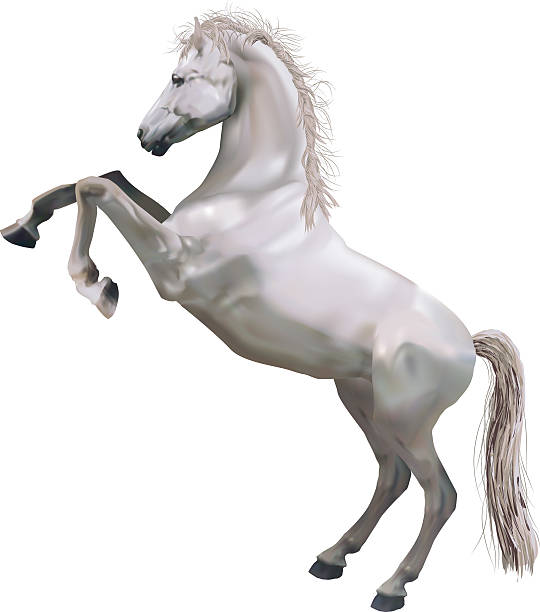
They would at somebody else, he said. I have a way with dogs. My cousin Mourad put his arms around the horse, pressed his nose into the horse’s nose, patted it, and then we went away.
That afternoon John Byro came to our house in his surrey and showed my mother the horse that had been stolen and returned.
I do not know what to think, he said. The horse is stronger than ever. Better-tempered, too. I thank God. My uncle Khosrove, who was in the parlour, became irritated and shouted, Quiet, man, quiet. Your horse has been returned. Pay no attention to it.
PARAGRAPH 32

They would at somebody else, he said. I have a way with dogs. My cousin Mourad put his arms around the horse, pressed his nose into the horse’s nose, patted it, and then we went away.
That afternoon John Byro came to our house in his surrey and showed my mother the horse that had been stolen and returned.
I do not know what to think, he said. The horse is stronger than ever. Better-tempered, too. I thank God. My uncle Khosrove, who was in the parlour, became irritated and shouted, Quiet, man, quiet. Your horse has been returned. Pay no attention to it.
EXPLANATION
Usne kaha ki ve kissi aur par bhaukte lekin uske paas kutton ke saath baat karne ka ek tareeka hai.
Mourad ne ghode ke chaaro oor apni baahe daal di, apni naak ko ghode ki naak se milaaya, usse thapthapaya aur phir hum vaapis chale aaye.
Uss dopher ko John Byro humare ghar aaye aur unhone meri maa ko vah ghoda dikhaaya jo chori ho gaya tha aur ab vaapas aa gaya tha.
Mujhe nahi pata ki mein kya sochu, unhone kaha. Ghoda pehle se zyada majboot hai. Iska swabhaav bhi behtar ho gaya hai. Mein eeshvar ka dhanyvaad karta hu. Mere chacha Khosrove, jo parlour mein the, chidh gaye aur chillaye, "Chup, yaar, chup. Tumhara ghoda vaapas aa gaya hai. Iss par koi dhyaan na do."
EXPLANATION
उसने कहा कि वे किसी और पर भौकते लेकिन उसके पास कुत्तों के साथ बात करने का एक तरीका है।
मौराड ने घोड़े के चारों ओर अपनी बाहें डाल दीं, अपनी नाक को घोड़े की नाक से मिलाया, उसे थपथपाया और फिर हम वापिस चले आए।
उस दोपहर को जॉन बायरो हमारे घर आए और उन्होंने मेरी माँ को वह घोड़ा दिखाया जो चोरी हो गया था और अब वापस आ गया था।
मुझे नहीं पता कि में क्या सोचू, उन्होंने कहा। घोड़ा पहले से ज्यादा मजबूत है। इसका स्वभाव भी बेहतर हो गया है। मैं ईश्वर का धन्यवाद करता हूँ। मेरे चाचा खोस्रोवे, जो पार्लर में थे, चिढ़ गए और चिल्लाए, चुप, यार, चुप। तुम्हारा घोड़ा वापस आ गया है। इस पर कोई ध्यान न दो।
SUMMARY
SUMMARY
EXPLANATION
CHARACTER SKETCH
Aram: Aram is the storyteller of the story, and fills in as the ethical focus. He is extremely aware of making the best choice, while understanding the financial difficulties of the family. He tries not to upset the adults in the family, and keeping in mind that he adores horses, he comprehends that in taking it, he and his cousin are doing something that isn't totally correct.
अराम: अराम कहानी का कहानीकार है, और नैतिक फोकस के रूप में कहानी में दिखता है। वह परिवार की वित्तीय कठिनाइयों को समझते हुए, सबसे अच्छा विकल्प बनाने के लिए बेहद जागरूक है। वह परिवार में वयस्कों को न परेशान करने कि कोशिश करता है, यह ध्यान में रखते हुए कि वह घोड़ों को पसंद करता है, वह समझता है कि इसे रखने के चक्कर में, वह और उसका चचेरा भाई कुछ ऐसा कर रहे हैं जो पूरी तरह से सही नहीं है।
Mourad: Mourad interestingly, is guided by his enthusiasm for horses, convincing him to keep it. Individuals excuse his conduct as they do Uncle Khosrove (not his father), and as far as concerns him.
Mourad accepts that he has an uncommon way to deal with managing animals, for instance. This makes him approach things distinctively than Aram.
मोराड: मोराड दिलचस्प रूप से, घोड़ों के लिए अपने उत्साह से निर्देशित है, जो उसे उस घोड़े को रखने के लिए आश्वस्त करता है। सब उसके आचरण को नज़रअंदाज़ करते थे जैसा कि वे अंकल खोस्रोव (उसके पिता नहीं) को करते हैं, जहाँ तक उनकी याद की जाए।
मौराड स्वीकार करता है कि उसके पास जानवरों को संभालने के लिए एक असामान्य तरीका है, उदाहरण के लिए, इससे वह अराम कि तुलना में चीजों को अलग तरीके से समझ पाता है।
CHARACTER SKETCH
Aram: Aram is the storyteller of the story, and fills in as the ethical focus. He is extremely aware of making the best choice, while understanding the financial difficulties of the family. He tries not to upset the adults in the family, and keeping in mind that he adores horses, he comprehends that in taking it, he and his cousin are doing something that isn't totally correct.
Mourad: Mourad interestingly, is guided by his enthusiasm for horses, convincing him to keep it. Individuals excuse his conduct as they do Uncle Khosrove (not his father), and as far as concerned him.
Mourad accepts that he has an uncommon way to deal with managing animals, for instance. This makes him approach things distinctively than Aram.
QUESTION ANSWERS
QUESTION 1. You will probably agree that this story does not have breathless adventure and exciting action. Then what in your opinion makes it interesting?
ANSWER: The story “the summer of the beautiful white horse” is a story told from the perspective of a nine year old boy. The author shares a childhood incident, which holds a special place in his heart. At a very young age, imagination is rich and a child is very passionate about things he likes. For the young poor boy, riding a beautiful white horse was a dream. A dream he knew could not be true until one day his cousin asked him if he wanted to ride one. The innocence of the language in which the little boy narrates the story keeps us in suspense about the belongingness of the horse.
The interesting feature which makes this story captivating is the way every character has their own unique way of dealing with problems.
QUESTION 2. Did the boys return the horse because they were conscience-stricken or because they were afraid?
ANSWER: The most wonderful pith of this story is the way that the young men were innocent and intended no damage to anybody. The story gives no indication that the boys were afraid of anyone or anything. Hence the return of the horse was not directed by fear. They simply wished to ride a horse. It disturbed their inner voice when they saw the innocent heart of the farmer, John Byro, who didn't presume them in any event, for once for taking the horse.
The meeting with John Byro proved to be effective. He praised their family for its honesty and patient behavior. He believed the young men as he knew their family. Subsequently to maintain the family custom and reputation, the young boys returned the horse to its legitimate owner.
QUESTION 3. “One day back there in the good old days when I was nine and the world was full of every imaginable kind of magnificence, and life was still a delightful and mysterious dream...” The story begins in a mood of nostalgia. Can you narrate some incident from your childhood that might make an interesting story?
ANSWER: The most I can remember from my childhood are just specks of memories. Everything was different when we were little children. How small and insignificant things and incidents brought us so much joy. I remember this, from when I was 9 years old. My parents took me and my elder brother on a trip. It was a short trip to a closeby hill station. Running up and down the slopes and chasing each other our parents got exhausted just by looking at us, running all day. It was the evening, and we were tired from all the sightseeing and travelling. We sat at a small cafe which had an amazing view of the river and a big bright sky about us. Mid-eating I heard loud voices, I almost got scared for a moment. I was told to look at the sky. Colourful sparkles in the night sky making beautiful patterns. It was my first time watching a firework show and it was the best so far. We enjoyed the rest of the dinner, it was an amazing day.
QUESTION 4. The story revolves around characters who belong to a tribe in Armenia. Mourad and Aram are members of the Garoghlanian family. Now locate Armenia and Assyria on the atlas and prepare a write-up on the Garoghlanian tribes. You may write about people, their names, traits, geographical and economic features as suggested in the story.
ANSWER: Here are a few words to describe the Garoghlanian tribes: This entire concept of the existence of this tribe is said to be fictitious. It's said to be formed by William Saroyan in his book “My name is Aram” (1940). The Garoghlanian tribe is Armenian. Eleven centuries ago it was the wealthiest family in that part of the world. However, now every branch of the Garoghlanian tribe was living in the most amazing and comical poverty in the world. These poor people had no money. Nobody could understand where they ever got money enough to keep them with food in their bellies. The culture of these people, known for their honesty, is at the heart of the story. Hospitality is also an important function in the Armenian culture. Social gatherings revolve around large amounts of food. The religion of most Armenian people is Christianity, which is structured around forgiveness of sins and focuses on the spirit of Tolerance.
EXPLANATION
Aram: Aram kahani ka storyteller hai, aur naitik focus ke roop mein kahani mein dikhta hai. Vah parivaar ki vitteey (financial) kathinaiyon ko samajhte hue, sabse achha vikalp banaane ke liye behad jaagrook hai. Vah parivaar mein adults ko naa pareshaan karne ki koshish karta hai, yah dhyaan mein rakhte hue ki vah ghodon ko pasand karta hai, vah samajhta hai ki issey rakhne ke chakkar mein, vah aur uska chachera bhai kuch aisa kar rahe hai jo poori tarah se sahi nahi hai.
Mourad: Mourad dilchasp roop se, ghodon ke liye apne utsaah se nirdeshit hai, jo usse uss ghode ko rakhne ke liye aashvast karta hai. Sab uske aachran ko nazarandaaz karte the jaisa ki ve Uncle khosrov (uske pita nahi) ko karte hain, jahaan tak unki yaad ki jaye.
Mourad sweekaar karta hai ki uske paas jaanvaro ko sambhalne ke liye ek asaamaany tareeka hai, udaahran ke liye. Isse vah Aram ki tulna mein cheezo ko alag tareeke se samajh pata hai.
EXTRA QUESTIONS
QUESTION 1. What does the writer suggest by beginning the story with the following words, “One day back there in the good old days…”?
ANSWER: The beginning of the story suggests that the incident that is going to be narrated is not one from the recent. It is something that happened years back when the narrator was young and life was much simpler than now. The words ‘good old days’ suggest that the times in the past were way better and fun than what they are at present.
QUESTION 2. What does the writer say about the ‘good old days’?
ANSWER: The ‘good old days’ refer to a time of the incident when the narrator was young, about nine years old. At that time the world was full of all possible kinds of splendour. Life then seemed exciting and was as alluring as a mysterious dream.
QUESTION 3. What was the narrator’s first reaction to the horse?
ANSWER: When the narrator’s cousin, Mourad, came to his window at four in the morning and woke him up, Aram could not believe what he saw. Mourad was standing with a beautiful white horse outside his window. He stuck his head out of the window and rubbed his eyes to make sure that it wasn't a dream, and he often dreamed about riding a white beautiful horse someday.
QUESTION 4. What did the narrator think of Mourad?
ANSWER: The world believed that Mourad was a crazy child but Aram considered him sane. Aram knew that Mourad enjoyed being alive more than anybody else, he would do whatever he wanted to do. He was fun, exciting and unpredictable.
QUESTION 5. What were the chief traits of the members of his family that the narrator could recall?
ANSWER: The people of the narrator's tribe were poverty stricken and lived on the bare minimum, yet they were hardworking and honest. They were proud of themselves, honest, and they believed in right and wrong. The members of the tribe would never take advantage of anybody in the world, let alone steal. They would instead try their best to help everybody out.
QUESTION ANSWERS
QUESTION 1. You will probably agree that this story does not have breathless adventure and exciting action. Then what in your opinion makes it interesting?
ANSWER: The story “the summer of the beautiful white horse” is a story told from the perspective of a nine year old boy. The author shares a childhood incident, which holds a special place in his heart. At a very young age, imagination is rich and a child is very passionate about things he likes. For the young poor boy, riding a beautiful white horse was a dream. A dream he knew could not be true until one day his cousin asked him if he wanted to ride one. The innocence of the language in which the little boy narrates the story keeps us in suspense about the belongingness of the horse.
The interesting feature which makes this story captivating is the way every character has their own unique way of dealing with problems.
QUESTION 2. Did the boys return the horse because they were conscience-stricken or because they were afraid?
ANSWER: The most wonderful pith of this story is the way that the young men were innocent and intended no damage to anybody. The story gives no indication that the boys were afraid of anyone or anything. Hence the return of the horse was not directed by fear. They simply wished to ride a horse. It disturbed their inner voice when they saw the innocent heart of the farmer, John Byro, who didn't presume them in any event, for once for taking the horse.
The meeting with John Byro proved to be effective. He praised their family for its honesty and patient behavior. He believed the young men as he knew their family. Subsequently to maintain the family custom and reputation, the young boys returned the horse to its legitimate owner.
QUESTION 3. “One day back there in the good old days when I was nine and the world was full of every imaginable kind of magnificence, and life was still a delightful and mysterious dream...” The story begins in a mood of nostalgia. Can you narrate some incident from your childhood that might make an interesting story?
ANSWER: The most I can remember from my childhood are just specks of memories. Everything was different when we were little children. How small and insignificant things and incidents brought us so much joy. I remember this, from when I was 9 years old. My parents took me and my elder brother on a trip. It was a short trip to a closeby hill station. Running up and down the slopes and chasing each other our parents got exhausted just by looking at us, running all day. It was the evening, and we were tired from all the sightseeing and travelling. We sat at a small cafe which had an amazing view of the river and a big bright sky about us. Mid-eating I heard loud voices, I almost got scared for a moment. I was told to look at the sky. Colourful sparkles in the night sky making beautiful patterns. It was my first time watching a firework show and it was the best so far. We enjoyed the rest of the dinner, it was an amazing day.
QUESTION 4. The story revolves around characters who belong to a tribe in Armenia. Mourad and Aram are members of the Garoghlanian family. Now locate Armenia and Assyria on the atlas and prepare a write-up on the Garoghlanian tribes. You may write about people, their names, traits, geographical and economic features as suggested in the story.
ANSWER: Here are a few words to describe the Garoghlanian tribes: This entire concept of the existence of this tribe is said to be fictitious. It's said to be formed by William Saroyan in his book “My name is Aram” (1940). The Garoghlanian tribe is Armenian. Eleven centuries ago it was the wealthiest family in that part of the world. However, now every branch of the Garoghlanian tribe was living in the most amazing and comical poverty in the world. These poor people had no money. Nobody could understand where they ever got money enough to keep them with food in their bellies. The culture of these people, known for their honesty, is at the heart of the story. Hospitality is also an important function in the Armenian culture. Social gatherings revolve around large amounts of food. The religion of most Armenian people is Christianity, which is structured around forgiveness of sins and focuses on the spirit of Tolerance.
PREVIOUS YEAR QUESTIONS
QUESTION 1. Write a brief note on the Garoghlanian family as perceived by the narrator.
ANSWER: The members of the Garoghlanian family were poverty stricken. In fact, the complete tribe was penniless. However the family was living within the most exciting and humorous financial condition within the world. No one could figure out from where they ever got enough cash to feed themselves, not even the old men of the family. Most significantly, they were famous for their honesty for around eleven centuries, even when they were one of the richest families in the world. They were proud of themselves, hardworking, honest, and believed in what was right. No one from the tribe would take advantage of anybody in the world, let alone ever steal. The streak of ‘madness’ seen in Uncle Khosrove and cousin Mourad had been there in their tribe, from the beginning, unpredictable and unrestrained.
QUESTION 2. What did Aram feel about the ‘crazy streak’ in the family?
ANSWER: Aram felt that each family includes a crazy component somewhere, and Mourad appeared to have inherited it from their Uncle Khosrove, a man extremely furious in temper, so irritable and impatient that he would stop anyone from talking just by roaring, “It is no harm; pay no attention to that.” That was all he ever said despite the situation. Even once his own son Arak came running to the barber’s search where he was having his moustache cut to inform him their house was burning, Khosrove roared precisely the same dialogue. The barber was worried and therefore repeated what the little boy said however Khosrove roared, “Enough, it's no harm, I say.” Mourad, even though was the son of Zorab, was the one that had inherited the streak of craziness from uncle Khosrove.
QUESTION 3. What did John Byro perceive about the horse after it was returned? Why?
ANSWER: After the boys returned the horse to John Byro. He was filled with joy and said that the horse was stronger than ever and also better tempered. That was possible as the boys loved the horse and had taken good care of it. Moreover, they kept practicing riding it and that kept the horse active and he exercised without the weight of the surrey which made him stronger each day.
QUESTION 4. How did Aram justify the act of stealing the horse?
ANSWER: Aram felt that it would not be considered stealing till they offered to sell it, which they would never do. Stealing a horse for a ride was not the same thing as stealing it for something else, such as money, according to him. Perhaps, it would not be seen as stealing at all because they were mad about horses and wanted to ride one.
EXTRA QUESTIONS
QUESTION 1. What does the writer suggest by beginning the story with the following words, “One day back there in the good old days…”?
ANSWER: The beginning of the story suggests that the incident that is going to be narrated is not one from the recent. It is something that happened years back when the narrator was young and life was much simpler than now. The words ‘good old days’ suggest that the times in the past were way better and fun than what they are at present.
QUESTION 2. What does the writer say about the ‘good old days’?
ANSWER: The ‘good old days’ refer to a time of the incident when the narrator was young, about nine years old. At that time the world was full of all possible kinds of splendour. Life then seemed exciting and was as alluring as a mysterious dream.
QUESTION 3. What was the narrator’s first reaction to the horse?
ANSWER: When the narrator’s cousin, Mourad, came to his window at four in the morning and woke him up, Aram could not believe what he saw. Mourad was standing with a beautiful white horse outside his window. He stuck his head out of the window and rubbed his eyes to make sure that it wasn't a dream, and he often dreamed about riding a white beautiful horse someday.
QUESTION 4. What did the narrator think of Mourad?
ANSWER: The world believed that Mourad was a crazy child but Aram considered him sane. Aram knew that Mourad enjoyed being alive more than anybody else, he would do whatever he wanted to do. He was fun, exciting and unpredictable.
QUESTION 5. What were the chief traits of the members of his family that the narrator could recall?
ANSWER: The people of the narrator's tribe were poverty stricken and lived on the bare minimum, yet they were hardworking and honest. They were proud of themselves, honest, and they believed in right and wrong. The members of the tribe would never take advantage of anybody in the world, let alone steal. They would instead try their best to help everybody out.
GLOSSARY
Magnificence: the quality of being magnificent, भव्यता, वैभव
Delightful: causing delight; charming, आनंदप्रद
Mysterious: that you do not understand or cannot explain; strange, समझने या समझाने से परे; अद्भुत, रहस्यमय
Armenian: language of the people of Armenia,आर्मेनिया के लोगों की भाषा
Longings: to want something very much, especially something that is not likely, किसी वस्तु की बहुत चाह होना (विशेषतः जब संभावना अनुकूल न हो)
Comical: that makes you laugh; funny, हास्यकर; विनोदक
Garoghlanian: A tribe from Armenia, आर्मेनिया की एक जनजाति
Poverty stricken: very poor, बहुत ग़रीब, ग़रीबी का मारा, अभावग्रस्त
Consequently: as a result, फलस्वरूप
Magnificent: extremely impressive and attractive, अत्यधिक प्रभावशाली और आकर्षक, भव्य, शानदार
Pious: having or showing a deep belief in religion, धर्म में गहरा विश्वास करने या प्रदर्शित करने वाला; भक्त, धर्मपरायण
Humour: the funny or amusing qualities of somebody/something, व्यक्ति या वस्तु के विचित्र या हास्यजनक गुण
Leaped: to jump high or a long way, ऊँची या लंबी छलाँग लगाना
Vineyards: a piece of land where grapes are grown, अंगूर का बाग़
Orchards: a piece of land on which fruit trees are grown, फलों का बाग़, फलोद्यान
Trot: (used about a horse and its rider) to move forward at a speed that is faster than a walk, (घोड़े और घुड़सवार का) दुलकी चाल-चलना (उछल-उछल कर मध्यम गति से चलना)
Enormous: very big or very great, विशाल या अत्यधिक
Descendant: a person who belongs to the same family as somebody who lived a long time ago, वंशज, संतति
Irritable: becoming angry easily, जल्दी क्रुद्घ हो जाने वाला; चिड़चिड़ा
Impatient: not able to stay calm and wait for somebody/something; easily annoyed by somebody/something that seems slow, जो किसी व्यक्ति या वस्तु के लिए शांतिपूर्वक प्रतीक्षा न कर सके, अधीर, आतुर; व्यग्र
Harm: damage or injury, क्षति या चोट
Capricious: changing behaviour suddenly in a way that is difficult to predict, आचरण या व्यवहार में अचानक आए बदलाव से संबंधित जिसका पूर्वानुमान नहीं किया जा सके; सनकी, झक्की
Vagrant: a person who has no home and no job, especially one who asks people for money, आवारा (बेकार और बेघर तथा दूसरों से पैसा माँगते रहने वाला व्यकि्त)
Descendant: a person who belongs to the same family as somebody who lived a long time ago, वंशज, संतति
Practical: (used about people) making sensible decisions and good at dealing with problems, (व्यक्ति) विवेकी और व्यवहारकुशल
Snorted: (used about animals) to make a noise by blowing air through the nose and mouth, (पशुओं का) फुफकारना (नाक और मुँह से हवा निकालते हुए आवाज़ करना)
Vazire: In armenian 'Vazire' means to run, आर्मेनियन में वज़ीर का अर्थ दौड़ना होता है।
Dawned: to become clear (to somebody), कोई बात समझना, स्पष्ट होना
Alfalfa: a plant with small divided leaves and purple flowers, grown as food for farm animals and as a salad vegetable, छोटे पत्तों और बैंगनी फूलों युक्त पौधा जो चारे और सलाद पत्ते के रूप में प्रयोग किया जाता है; लसुनघास
Oats: a type of grain that is used as food for people and animals, जई, जुई, जुंदरी (एक प्रकार का अन्न जिससे मनुष्यों और पशुओं के खाद्य पदार्थ बनते हैं)
Hearty: large; making you feel full, तगड़ा, तीव्र, तेज़; छककर किया जाने वाला (भोजन)
Surrey: a light four-wheeled carriage pulled by a horse, घोड़े द्वारा खींची गई एक हल्की चौपहिया गाड़ी
PREVIOUS YEAR QUESTIONS
QUESTION 1. Write a brief note on the Garoghlanian family as perceived by the narrator.
ANSWER: The members of the Garoghlanian family were poverty stricken. In fact, the complete tribe was penniless. However the family was living within the most exciting and humorous financial condition within the world. No one could figure out from where they ever got enough cash to feed themselves, not even the old men of the family. Most significantly, they were famous for their honesty for around eleven centuries, even when they were one of the richest families in the world. They were proud of themselves, hardworking, honest, and believed in what was right. No one from the tribe would take advantage of anybody in the world, let alone ever steal. The streak of ‘madness’ seen in Uncle Khosrove and cousin Mourad had been there in their tribe, from the beginning, unpredictable and unrestrained.
QUESTION 2. What did Aram feel about the ‘crazy streak’ in the family?
ANSWER: Aram felt that each family includes a crazy component somewhere, and Mourad appeared to have inherited it from their Uncle Khosrove, a man extremely furious in temper, so irritable and impatient that he would stop anyone from talking just by roaring, “It is no harm; pay no attention to that.” That was all he ever said despite the situation. Even once his own son Arak came running to the barber’s search where he was having his moustache cut to inform him their house was burning, Khosrove roared precisely the same dialogue. The barber was worried and therefore repeated what the little boy said however Khosrove roared, “Enough, it's no harm, I say.” Mourad, even though was the son of Zorab, was the one that had inherited the streak of craziness from uncle Khosrove.
QUESTION 3. What did John Byro perceive about the horse after it was returned? Why?
ANSWER: After the boys returned the horse to John Byro. He was filled with joy and said that the horse was stronger than ever and also better tempered. That was possible as the boys loved the horse and had taken good care of it. Moreover, they kept practicing riding it and that kept the horse active and he exercised without the weight of the surrey which made him stronger each day.
QUESTION 4. How did Aram justify the act of stealing the horse?
ANSWER: Aram felt that it would not be considered stealing till they offered to sell it, which they would never do. Stealing a horse for a ride was not the same thing as stealing it for something else, such as money, according to him. Perhaps, it would not be seen as stealing at all because they were mad about horses and wanted to ride one.
GLOSSARY
Magnificence: the quality of being magnificent, भव्यता, वैभव
Delightful: causing delight; charming, आनंदप्रद
Mysterious: that you do not understand or cannot explain; strange, समझने या समझाने से परे; अद्भुत, रहस्यमय
Armenian: language of the people of Armenia,आर्मेनिया के लोगों की भाषा
Longings: to want something very much, especially something that is not likely, किसी वस्तु की बहुत चाह होना (विशेषतः जब संभावना अनुकूल न हो)
Comical: that makes you laugh; funny, हास्यकर; विनोदक
Garoghlanian: A tribe from Armenia, आर्मेनिया की एक जनजाति
Poverty stricken: very poor, बहुत ग़रीब, ग़रीबी का मारा, अभावग्रस्त
Consequently: as a result, फलस्वरूप
Magnificent: extremely impressive and attractive, अत्यधिक प्रभावशाली और आकर्षक, भव्य, शानदार
Pious: having or showing a deep belief in religion, धर्म में गहरा विश्वास करने या प्रदर्शित करने वाला; भक्त, धर्मपरायण
Humour: the funny or amusing qualities of somebody/something, व्यक्ति या वस्तु के विचित्र या हास्यजनक गुण
Leaped: to jump high or a long way, ऊँची या लंबी छलाँग लगाना
Vineyards: a piece of land where grapes are grown, अंगूर का बाग़
Orchards: a piece of land on which fruit trees are grown, फलों का बाग़, फलोद्यान
Trot: (used about a horse and its rider) to move forward at a speed that is faster than a walk, (घोड़े और घुड़सवार का) दुलकी चाल-चलना (उछल-उछल कर मध्यम गति से चलना)
Enormous: very big or very great, विशाल या अत्यधिक
Descendant: a person who belongs to the same family as somebody who lived a long time ago, वंशज, संतति
Irritable: becoming angry easily, जल्दी क्रुद्घ हो जाने वाला; चिड़चिड़ा
Impatient: not able to stay calm and wait for somebody/something; easily annoyed by somebody/something that seems slow, जो किसी व्यक्ति या वस्तु के लिए शांतिपूर्वक प्रतीक्षा न कर सके, अधीर, आतुर; व्यग्र
Harm: damage or injury, क्षति या चोट
Capricious: changing behaviour suddenly in a way that is difficult to predict, आचरण या व्यवहार में अचानक आए बदलाव से संबंधित जिसका पूर्वानुमान नहीं किया जा सके; सनकी, झक्की
Vagrant: a person who has no home and no job, especially one who asks people for money, आवारा (बेकार और बेघर तथा दूसरों से पैसा माँगते रहने वाला व्यकि्त)
Descendant: a person who belongs to the same family as somebody who lived a long time ago, वंशज, संतति
Practical: (used about people) making sensible decisions and good at dealing with problems, (व्यक्ति) विवेकी और व्यवहारकुशल
Snorted: (used about animals) to make a noise by blowing air through the nose and mouth, (पशुओं का) फुफकारना (नाक और मुँह से हवा निकालते हुए आवाज़ करना)
Vazire: In armenian 'Vazire' means to run, आर्मेनियन में वज़ीर का अर्थ दौड़ना होता है।
Dawned: to become clear (to somebody), कोई बात समझना, स्पष्ट होना
Alfalfa: a plant with small divided leaves and purple flowers, grown as food for farm animals and as a salad vegetable, छोटे पत्तों और बैंगनी फूलों युक्त पौधा जो चारे और सलाद पत्ते के रूप में प्रयोग किया जाता है; लसुनघास
Oats: a type of grain that is used as food for people and animals, जई, जुई, जुंदरी (एक प्रकार का अन्न जिससे मनुष्यों और पशुओं के खाद्य पदार्थ बनते हैं)
Hearty: large; making you feel full, तगड़ा, तीव्र, तेज़; छककर किया जाने वाला (भोजन)
Surrey: a light four-wheeled carriage pulled by a horse, घोड़े द्वारा खींची गई एक हल्की चौपहिया गाड़ी